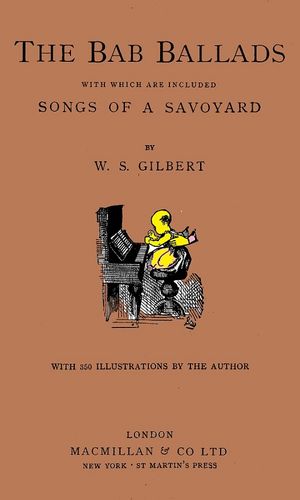
The cover image was created by the transcriber and is placed in the public domain.

THE BAB BALLADS
WITH WHICH ARE INCLUDED
SONGS OF A SAVOYARD
BY
W. S. GILBERT

WITH 350 ILLUSTRATIONS BY THE AUTHOR
LONDON
MACMILLAN & CO LTD
NEW YORK. ST MARTIN'S PRESS
This book is copyright in all countries which
are signatories to the Berne Convention
Transferred to Macmillan and Co. Ltd., 1904
Sixth Edition 1904
Reprinted 1906, 1908, 1910, 1912, 1914, 1917, 1919
1920, 1922, 1924, 1926, 1932, 1953, 1960
MACMILLAN AND COMPANY LIMITED
London Bombay Calcutta Madras Melbourne
THE MACMILLAN COMPANY OF CANADA LIMITED
Toronto
ST MARTIN'S PRESS INC
New York
PRINTED IN GREAT BRITAIN
AUTHOR'S NOTE
About thirty years since, several of "The Bab Ballads" (most of which had appeared, from time to time, in the pages of Fun) were collected by me, and published by Messrs. George Routledge and Sons. This volume passed through several editions, and, in due course, was followed by a second series under the title of "More Bab Ballads," which achieved a popularity equal to that of its predecessor. Subsequently, excerpts were made from these two volumes, and, under the title of "Fifty Bab Ballads," had a very considerable sale; but I soon discovered that in making the selection for this volume I had discarded certain Ballads that were greater favourites with my readers than with me. Nevertheless this issue was followed by many editions, English and American, of "Bab Ballads," "More Bab Ballads," and "Fifty Bab Ballads," to the no little bewilderment of such of the public as had been good enough to concern themselves with my verses. So it became desirable (for our own private ends) that this confusion should be definitely cleared up; and thus it came to pass that a reissue of the two earlier collections, in one volume, was decided upon.
Some seven years since, I collected the most popular of the songs and ballads which I had written for the series of light operas with which my name is associated, and published them under the title of "Songs of a Savoyard." It recently occurred to me that these songs had so much in common with "The Bab Ballads" that it might be advisable to weld the two books into one. This is, briefly, the history of the present volume.
I have always felt that many of the original illustrations to "The Bab Ballads" erred gravely in the direction of unnecessary extravagance. This defect I have endeavoured to correct through the medium of the two hundred new drawings which I have designed for this volume. I am afraid I cannot claim for them any other recommendation,
W. S. GILBERT.
Grim's Dyke, Harrow Weald,
4th December 1897.
CONTENTS.
| Page | |
| Captain Reece | 1 |
| The Darned Mounseer | 6 |
| The Rival Curates | 8 |
| The Englishman | 13 |
| Only a Dancing Girl | 14 |
| The Disagreeable Man | 16 |
| General John | 18 |
| The Coming By-and-By | 22 |
| To a Little Maid | 24 |
| The Highly Respectable Gondolier | 26 |
| John and Freddy | 28 |
| The Fairy Queen's Song | 32 |
| Sir Guy the Crusader | 34 |
| Is Life a Boon? | 38 |
| Haunted | 39 |
| The Modern Major-General | 42 |
| The Bishop and the 'Busman | 44 |
| The Heavy Dragoon | 49 |
| The Troubadour | 51 |
| Proper Pride | 56 |
| Ferdinando and Elvira; or, the Gentle Pieman | 58 |
| The Policeman's Lot | 63 |
| Lorenzo de Lardy | 64 |
| The Baffled Grumbler | 69 |
| [Pg viii] | |
| Disillusioned | 71 |
| The House of Peers | 74 |
| Babette's Love | 76 |
| A Merry Madrigal | 81 |
| To my Bride | 82 |
| The Duke and the Duchess | 84 |
| The Folly of Brown | 87 |
| Eheu Fugaces—! | 92 |
| Sir Macklin | 94 |
| They'll None of 'em be Missed | 99 |
| The Yarn of the "Nancy Bell" | 101 |
| Girl Graduates | 106 |
| The Bishop of Rum-ti-Foo | 108 |
| Braid the Raven Hair | 113 |
| The Precocious Baby | 114 |
| The Working Monarch | 119 |
| To Phœbe | 122 |
| The Ape and the Lady | 123 |
| Baines Carew, Gentleman | 125 |
| Only Roses | 130 |
| Thomas Winterbottom Hance | 131 |
| The Rover's Apology | 136 |
| A Discontented Sugar Broker | 138 |
| An Appeal | 143 |
| The Pantomime "Super" to his Mask | 144 |
| The Reward of Merit | 146 |
| The Ghost, the Gallant, the Gael, and the Goblin | 148 |
| The Magnet and the Churn | 153 |
| King Borria Bungalee Boo | 155 |
| The Family Fool | 161 |
| The Periwinkle Girl | 164 |
| Sans Souci | 169 |
| Thomson Green and Harriet Hale | 171 |
| A Recipe | 175 |
| [Pg ix] | |
| Bob Polter | 176 |
| The Merryman and his Maid | 182 |
| Ellen M'Jones Aberdeen | 185 |
| The Susceptible Chancellor | 191 |
| Peter the Wag | 193 |
| When a Merry Maiden Marries | 198 |
| The Three Kings of Chickeraboo | 200 |
| The British Tar | 204 |
| Gentle Alice Brown | 205 |
| A Man who would Woo a Fair Maid | 209 |
| The Sorcerer's Song | 211 |
| The Bumboat Woman's Story | 214 |
| The Fickle Breeze | 219 |
| The Two Ogres | 221 |
| The First Lord's Song | 227 |
| Little Oliver | 229 |
| Mister William | 235 |
| Would you Know? | 240 |
| Pasha Bailey Ben | 242 |
| Lieutenant-Colonel Flare | 248 |
| Speculation | 254 |
| Ah Me! | 255 |
| Lost Mr. Blake | 256 |
| The Duke of Plaza-Toro | 262 |
| The Baby's Vengeance | 265 |
| The Æsthete | 271 |
| The Captain and the Mermaids | 273 |
| Said I to Myself, Said I | 278 |
| Annie Protheroe | 280 |
| Sorry her Lot | 286 |
| An Unfortunate Likeness | 287 |
| The Contemplative Sentry | 292 |
| Gregory Parable, LL.D. | 294 |
| The Philosophic Pill | 299 |
| [Pg x] | |
| The King of Canoodle-dum | 301 |
| Blue Blood | 307 |
| First Love | 309 |
| The Judge's Song | 315 |
| Brave Alum Bey | 317 |
| When I First put this Uniform on | 322 |
| Sir Barnaby Bampton Boo | 324 |
| Solatium | 329 |
| The Modest Couple | 330 |
| A Nightmare | 335 |
| The Martinet | 338 |
| Don't Forget! | 345 |
| The Sailor Boy to his Lass | 348 |
| The Suicide's Grave | 354 |
| The Reverend Simon Magus | 356 |
| He and She | 361 |
| Damon v. Pythias | 363 |
| The Mighty Must | 367 |
| My Dream | 368 |
| A Mirage | 374 |
| The Bishop of Rum-ti-Foo Again | 376 |
| The Ghosts' High Noon | 381 |
| A Worm will Turn | 383 |
| The Humane Mikado | 388 |
| The Haughty Actor | 391 |
| Willow Waly! | 397 |
| The Two Majors | 399 |
| Life is Lovely all the Year | 403 |
| Emily, John, James, and I | 405 |
| The Usher's Charge | 411 |
| The Perils of Invisibility | 413 |
| The Great Oak Tree | 418 |
| Old Paul and Old Tim | 420 |
| King Goodheart | 424 |
| [Pg xi] | |
| The Mystic Selvagee | 426 |
| Sleep on! | 431 |
| The Cunning Woman | 433 |
| The Love-sick Boy | 439 |
| Phrenology | 440 |
| Poetry Everywhere | 445 |
| The Fairy Curate | 446 |
| He Loves! | 453 |
| The Way of Wooing | 454 |
| True Diffidence | 458 |
| Hongree and Mahry | 460 |
| The Tangled Skein | 466 |
| The Reverend Micah Sowls | 467 |
| My Lady | 471 |
| One against the World | 473 |
| The Force of Argument | 475 |
| Put a Penny in the Slot | 480 |
| Good Little Girls | 482 |
| The Phantom Curate | 484 |
| Life | 487 |
| Limited Liability | 490 |
| The Sensation Captain | 492 |
| Anglicised Utopia | 497 |
| An English Girl | 499 |
| Tempora Mutantur | 501 |
| A Manager's Perplexities | 504 |
| Out of Sorts | 506 |
| At a Pantomime | 508 |
| How it's Done | 512 |
| A Classical Revival | 515 |
| The Story of Prince Agib | 518 |
| The Practical Joker | 523 |
| The National Anthem | 526 |
| Joe Golightly; or, the First Lord's Daughter | 528 |
| [Pg xii] | |
| Her Terms | 534 |
| The Independent Bee | 536 |
| To the Terrestrial Globe | 539 |
| Etiquette | 541 |
| The Disconcerted Tenor | 547 |
| Ben Allah Achmet; or, the Fatal Tum | 549 |
| The Played-out Humorist | 553 |
| Index to First Lines | 555 |
| Alphabetical Index to Titles | 561 |
THE BAB BALLADS
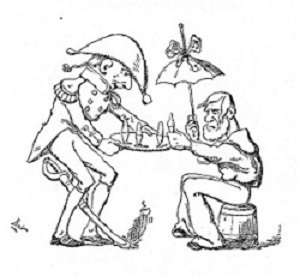
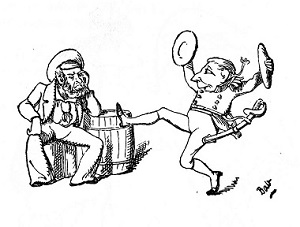
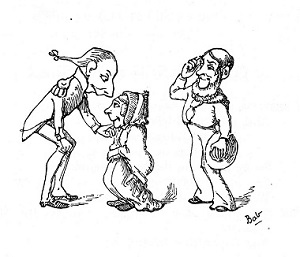
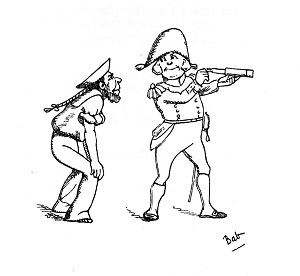
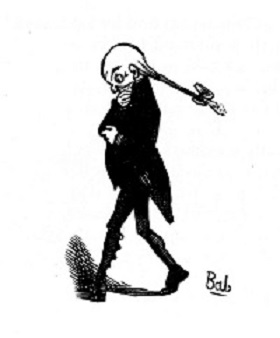
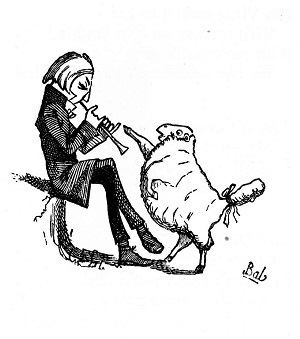
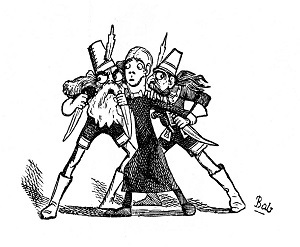
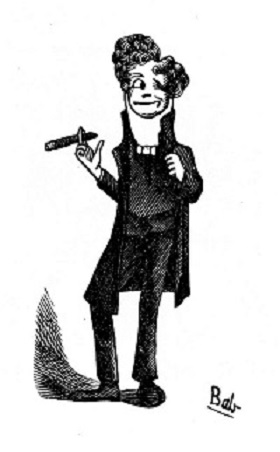
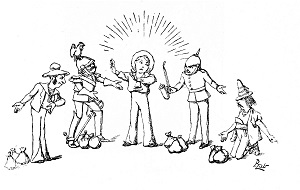
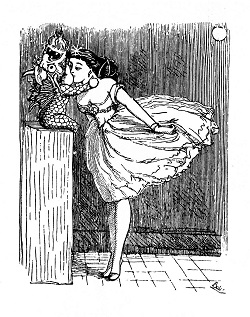
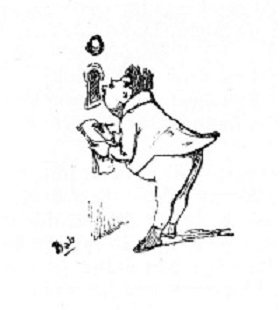
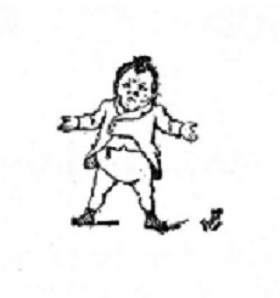
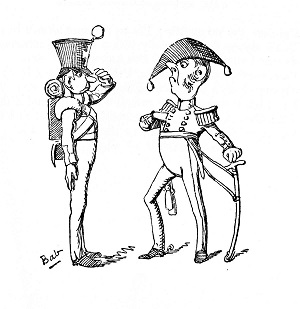
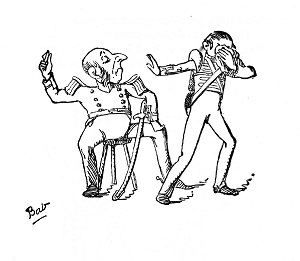
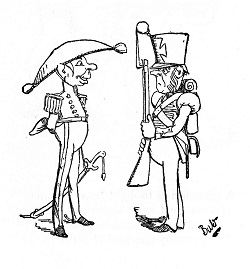
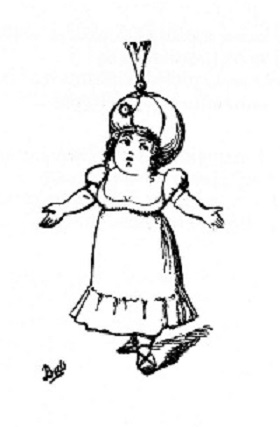
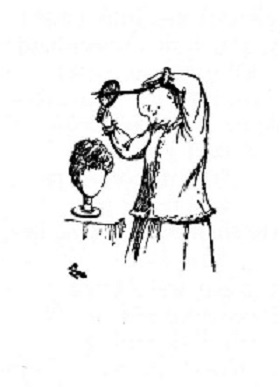
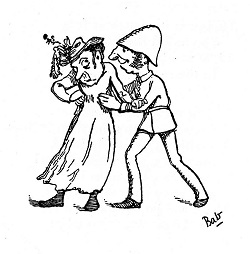
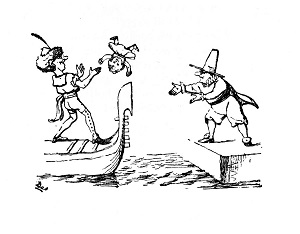
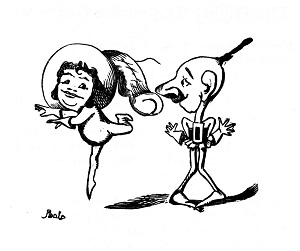
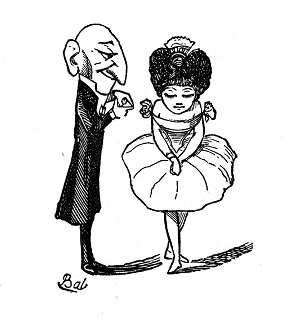
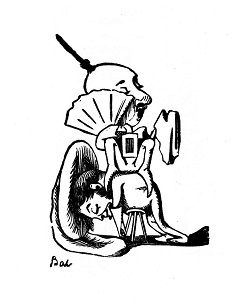
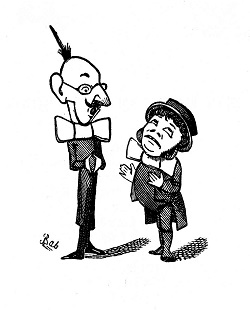
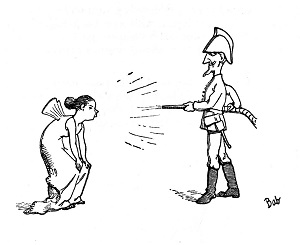
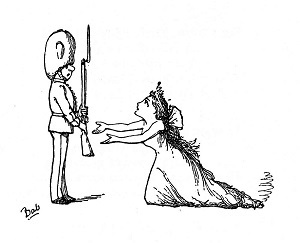
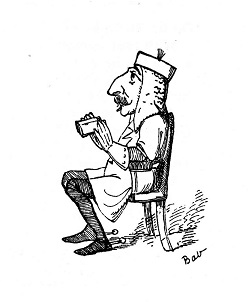
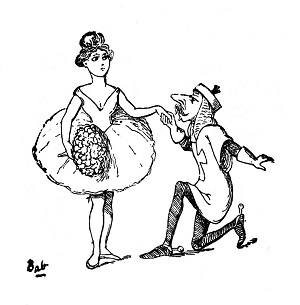
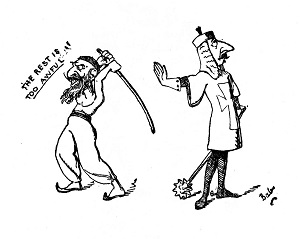
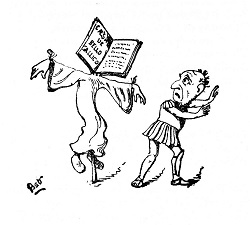
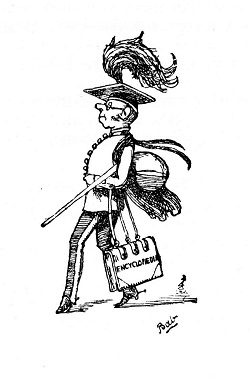
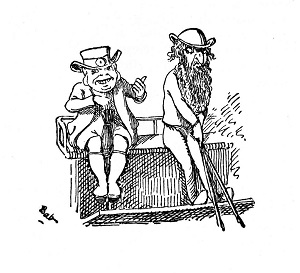
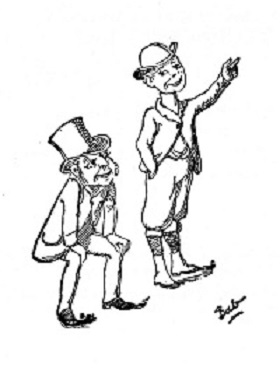
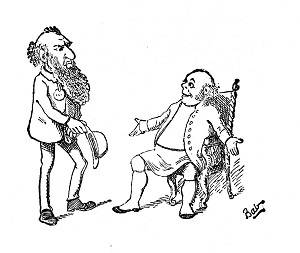
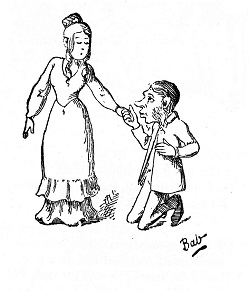
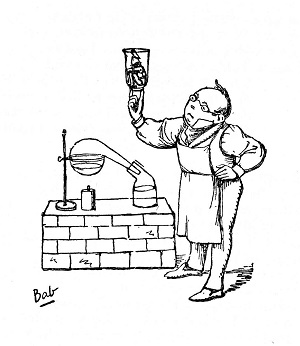
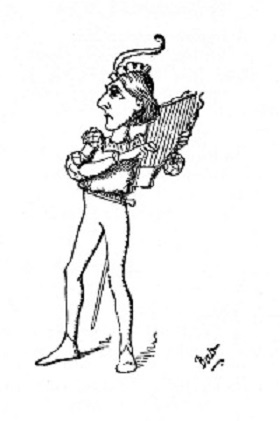
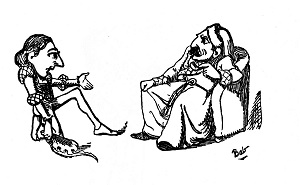
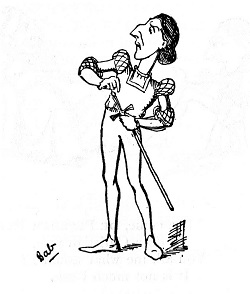
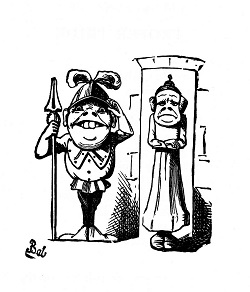
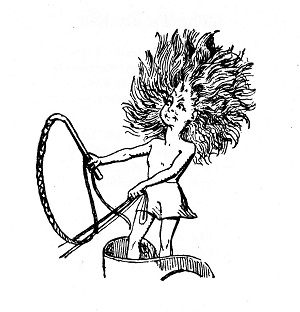
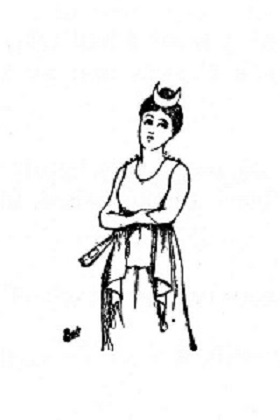
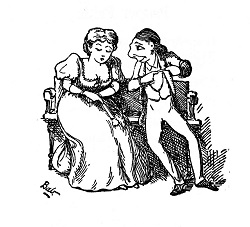
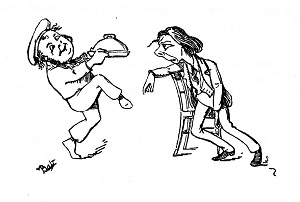
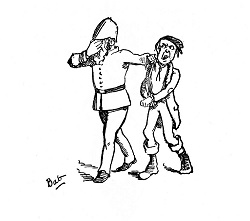
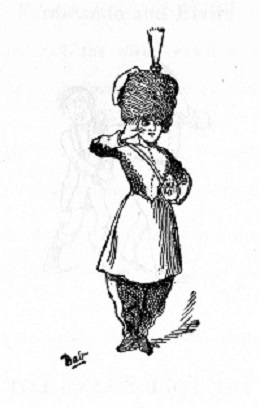
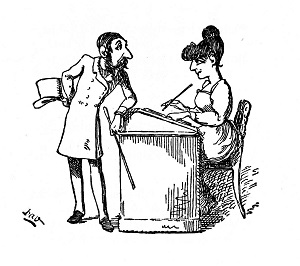
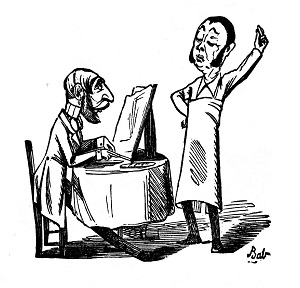
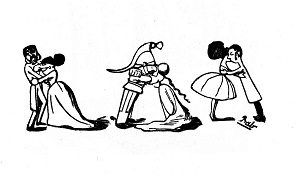
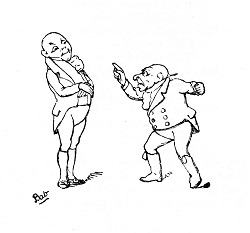
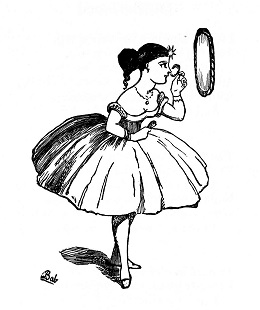
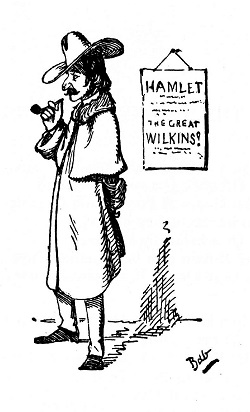
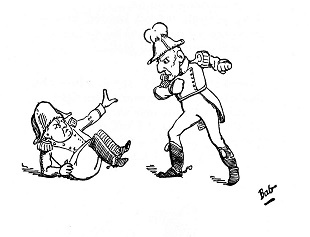
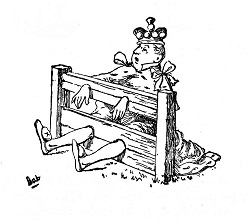
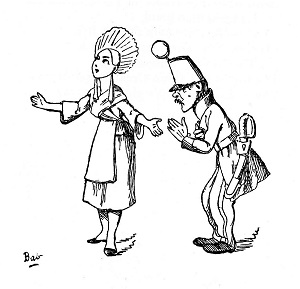
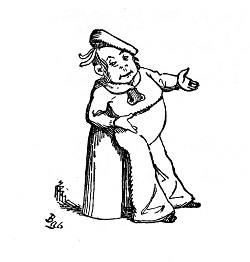
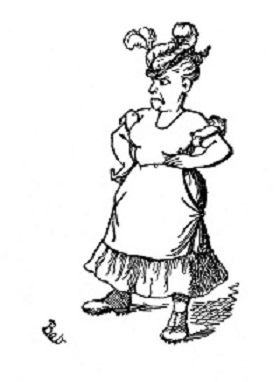
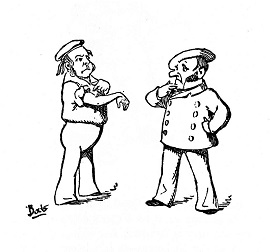
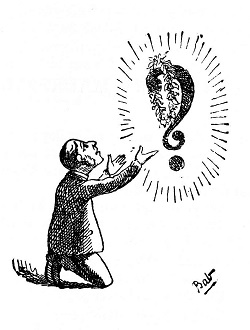
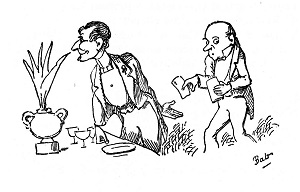
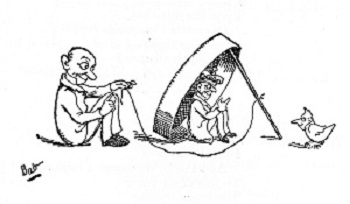
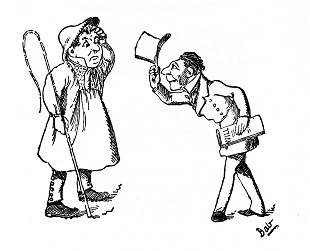
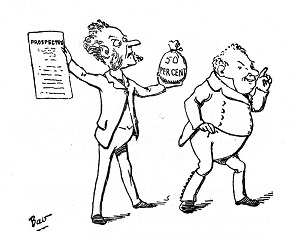
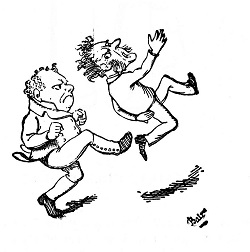
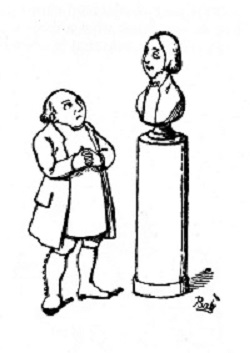
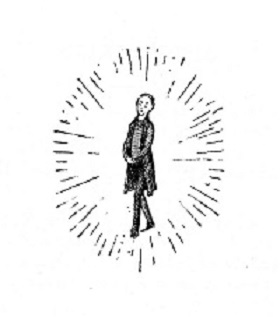

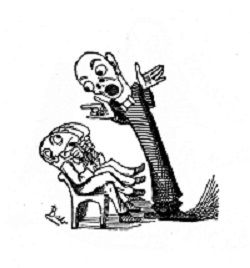
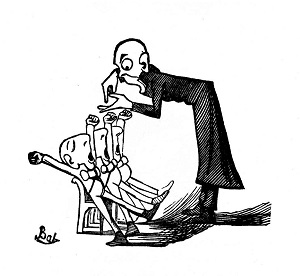
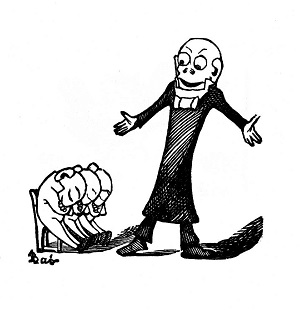
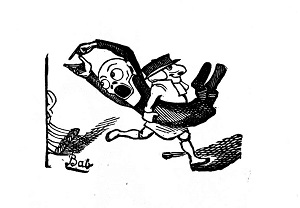
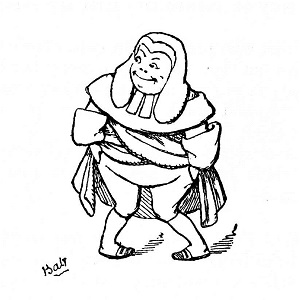
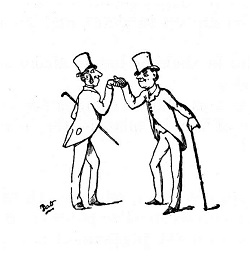
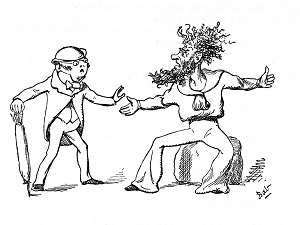
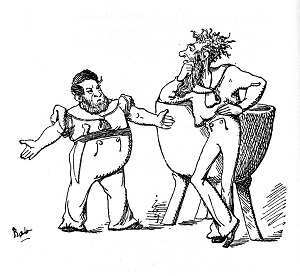
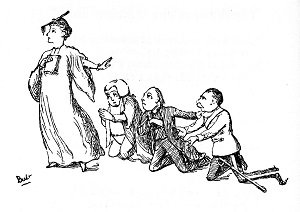
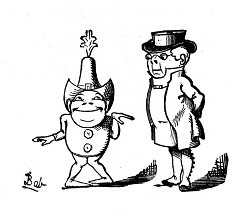
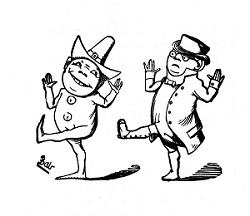
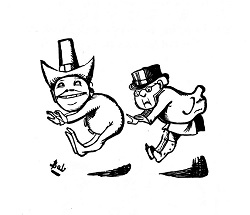
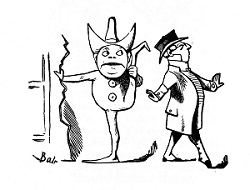
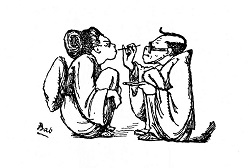
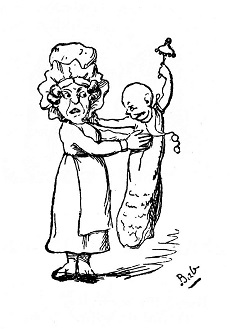
(To be sung to the Air of the "Whistling Oyster.")
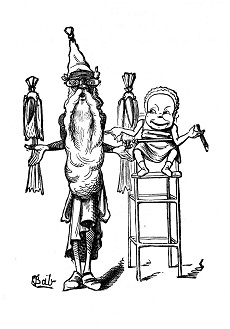
MORAL
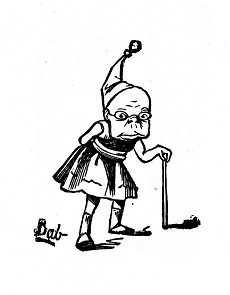
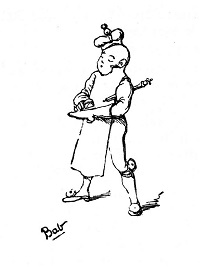
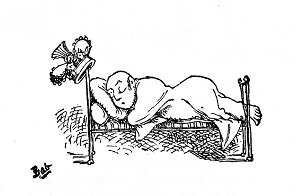
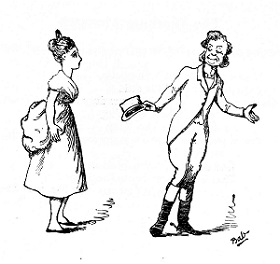
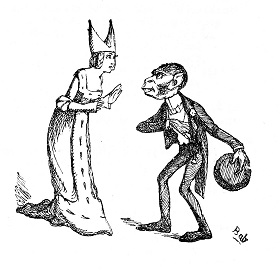
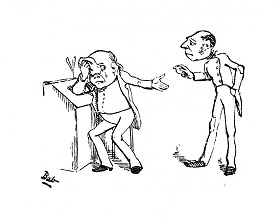
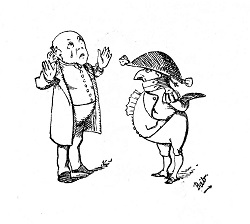
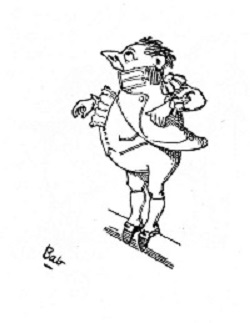
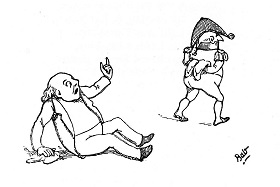
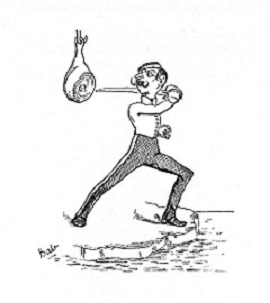
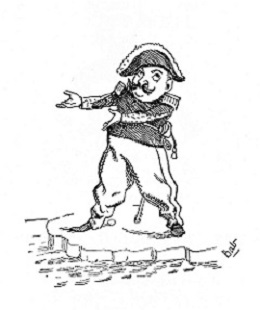
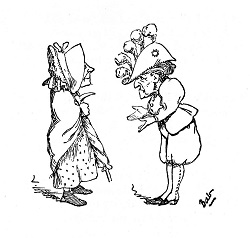
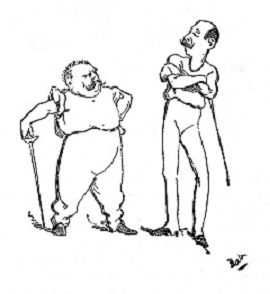
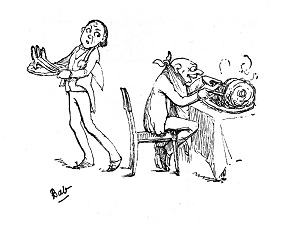
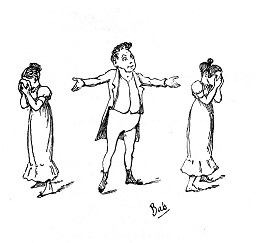
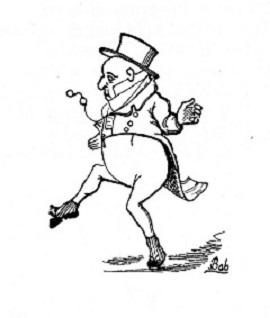
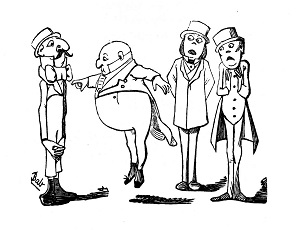
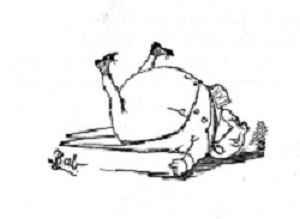
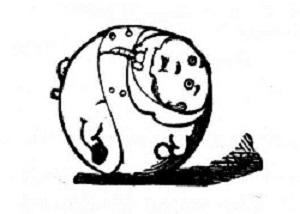
MORAL
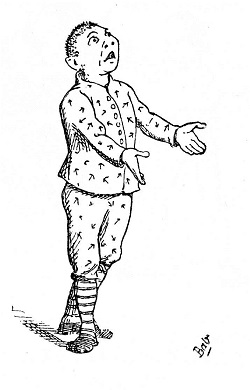
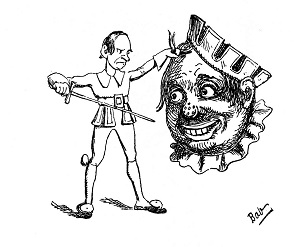
(The Mask respondeth.)
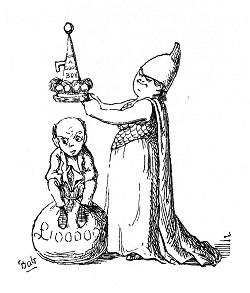
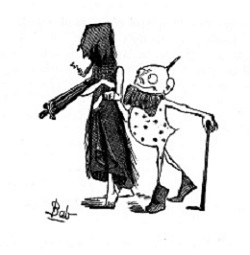
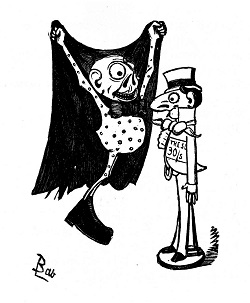
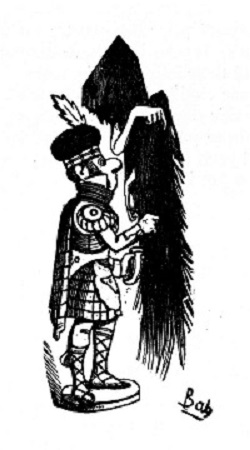
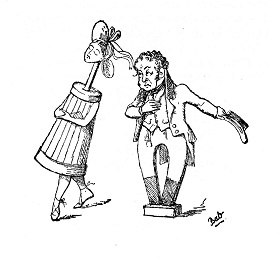
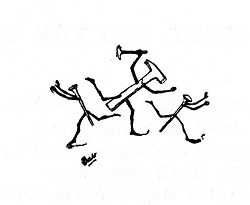
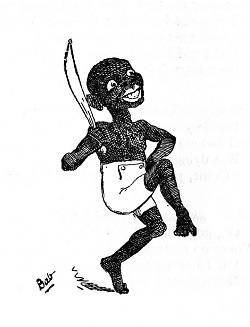
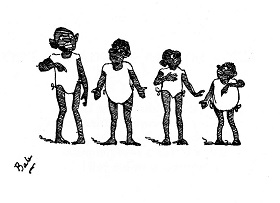
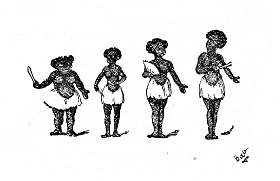
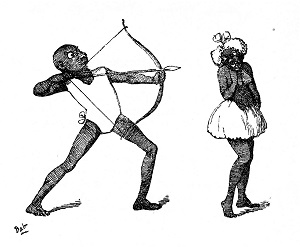
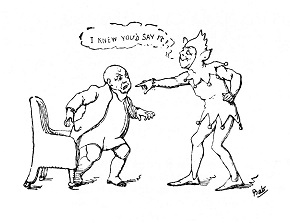
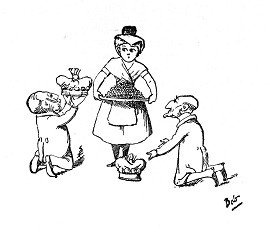
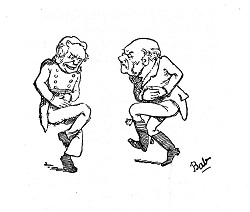
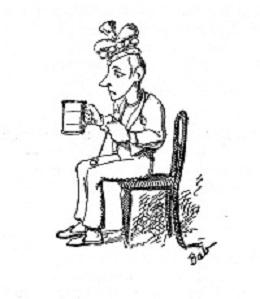
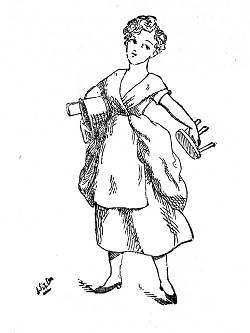
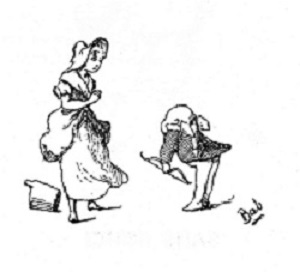
(To be sung to the Air of "An 'Orrible Tale.")
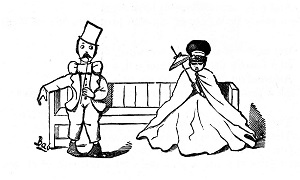
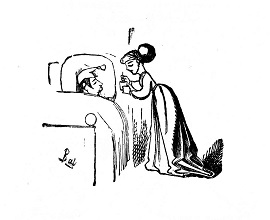
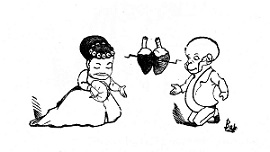
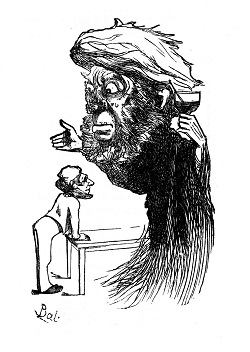
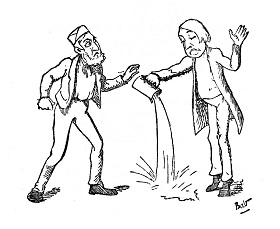
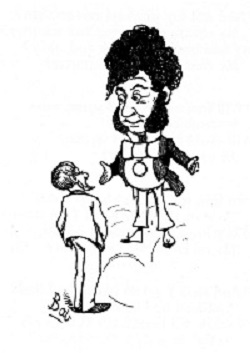
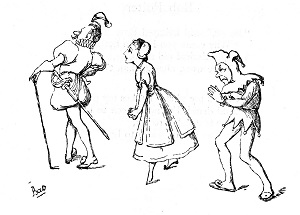
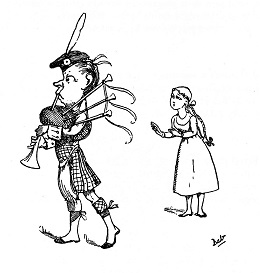
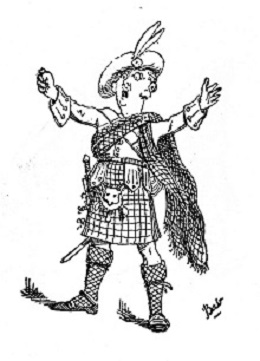
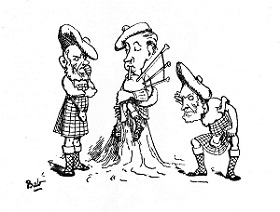
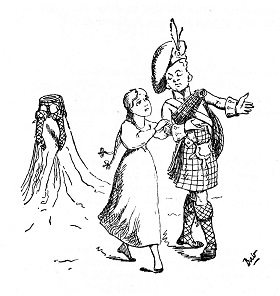
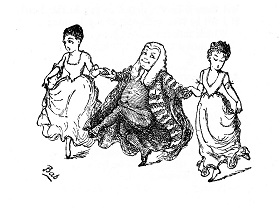
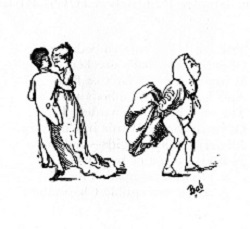
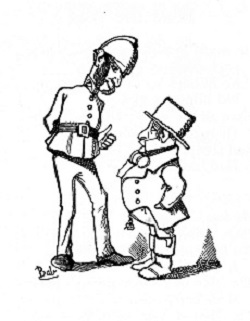
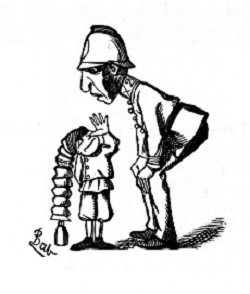
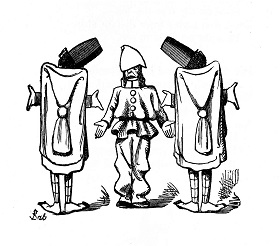
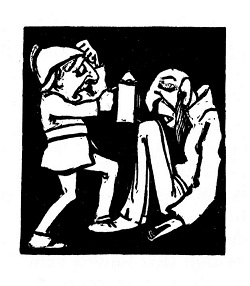
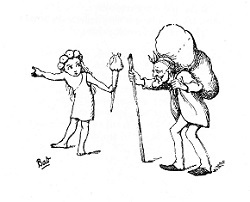
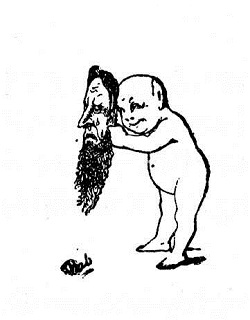
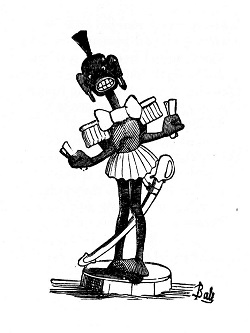
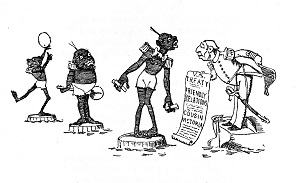
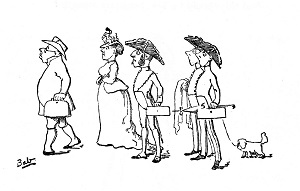
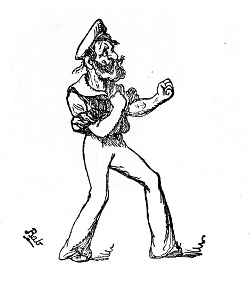
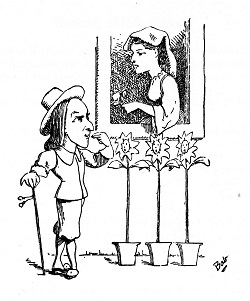
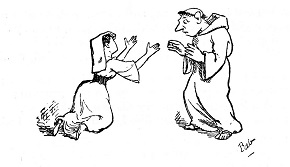
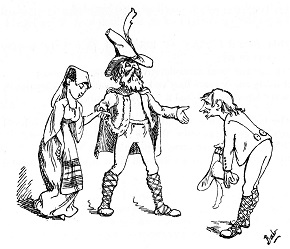
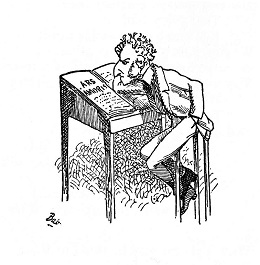
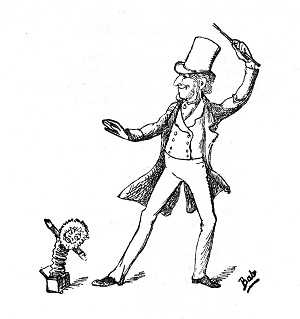
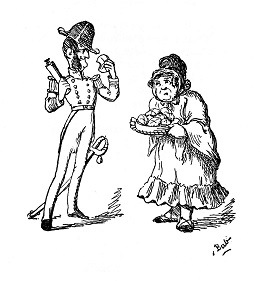
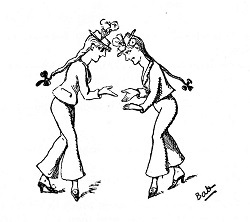
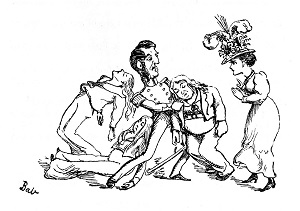
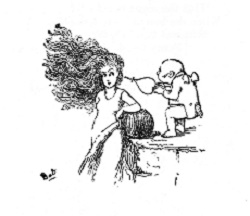
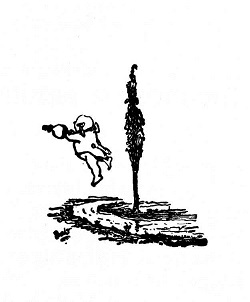
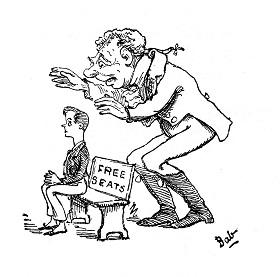
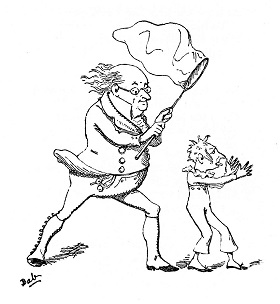
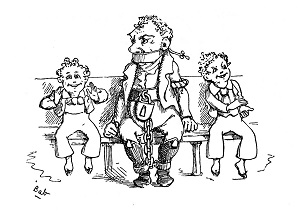
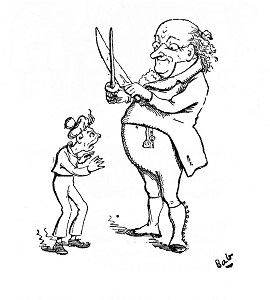
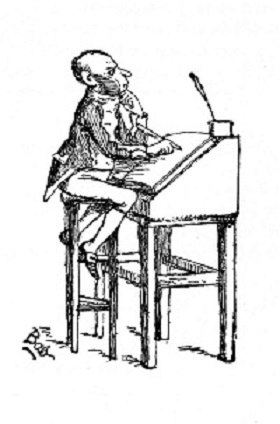
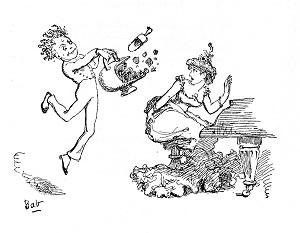
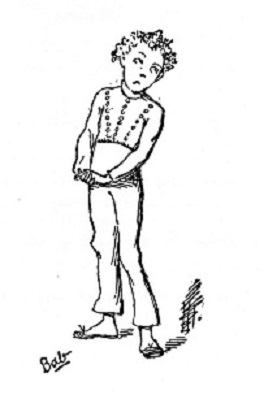
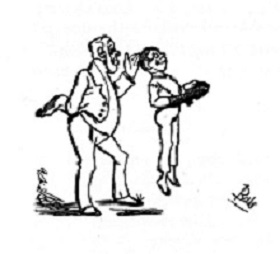
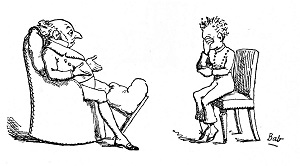
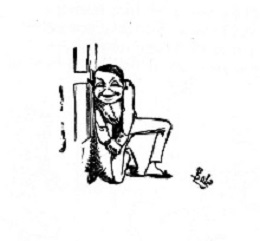
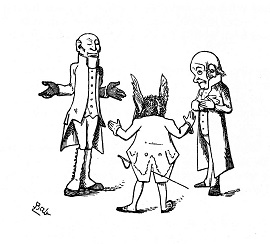
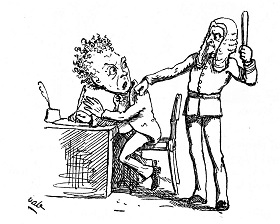
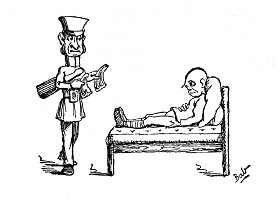
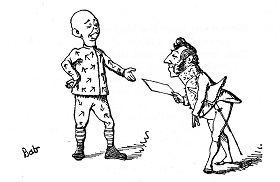
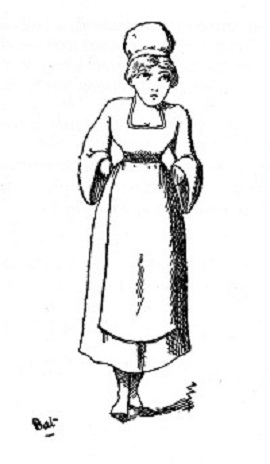
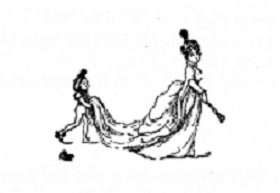
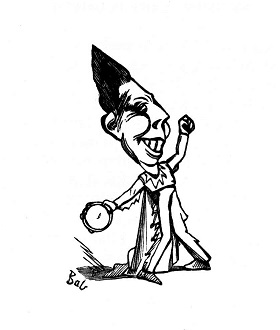
His Importance
His Presents
More of them
Why I mention these
His Confidant
His Confidant's Countenance
His Character
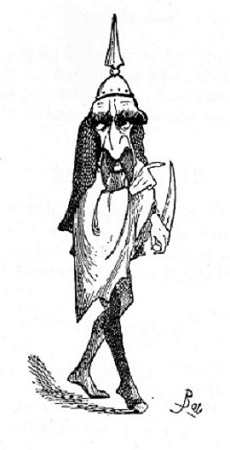
The Author to his Reader
The same, continued
The Pasha's Clerk
His Accomplishments
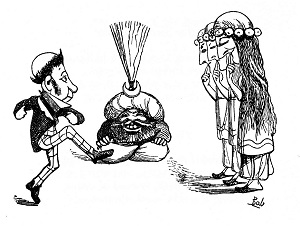
His Kindness to the Pasha's Wives
The Author to his Reader
The Author's Muse
The Pasha's Visitor
The Visitor's Outfit
What the Visitor said
The Author's Moderation
The Author to his Reader
The Reader to the Author
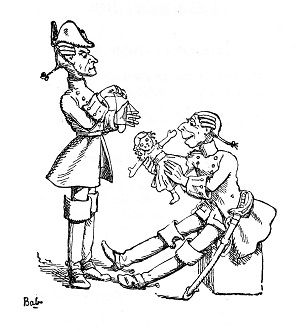
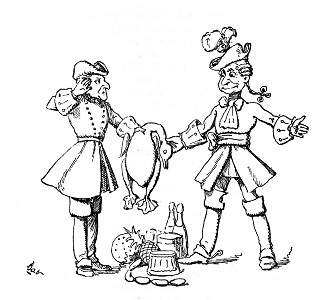
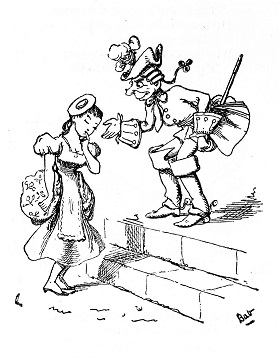
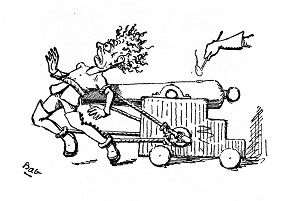
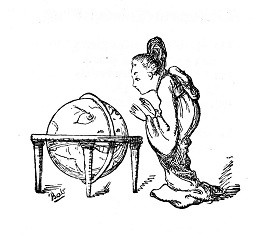
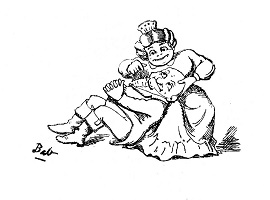
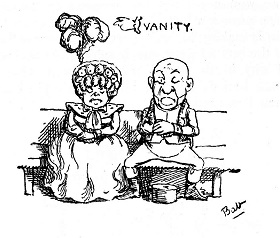
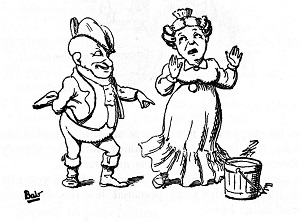
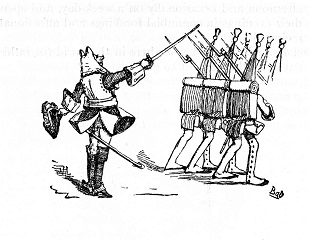
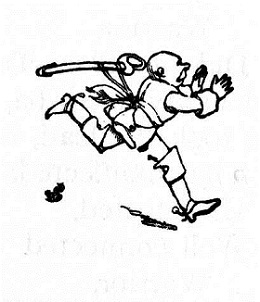
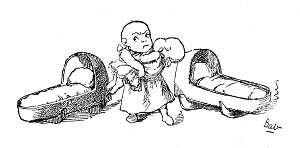

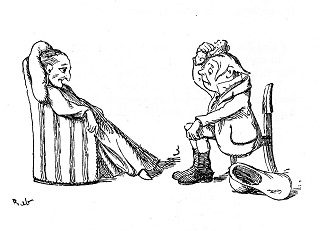
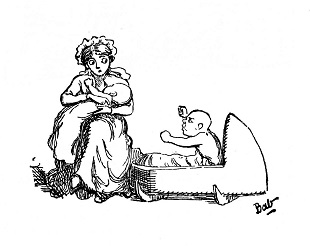
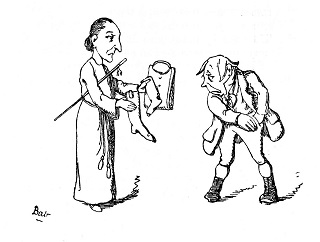
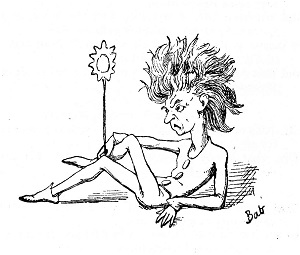
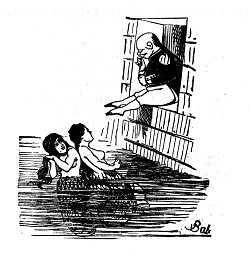
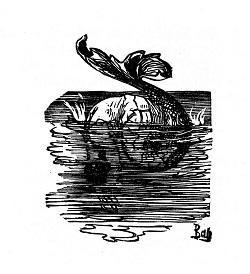
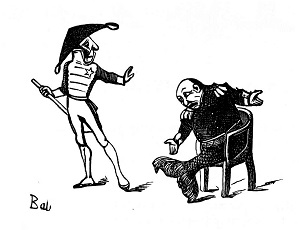
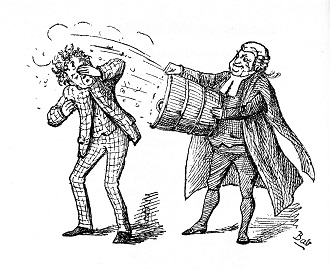
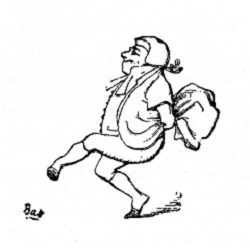
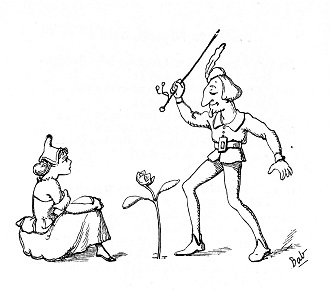
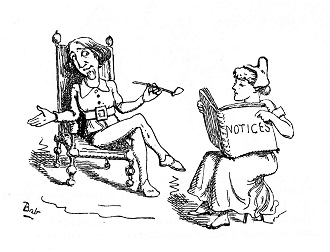
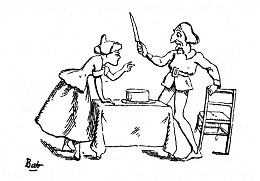
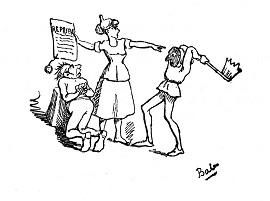
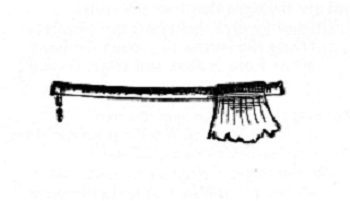
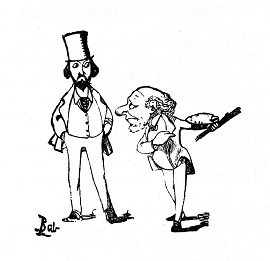
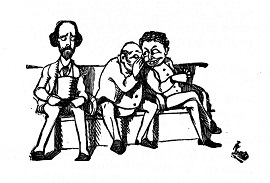
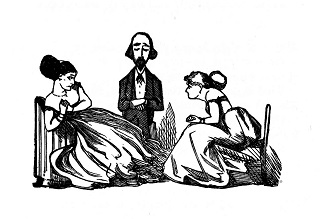
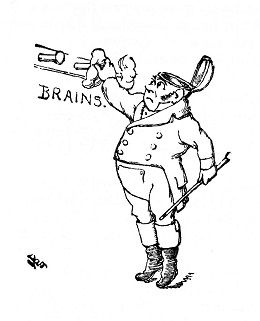
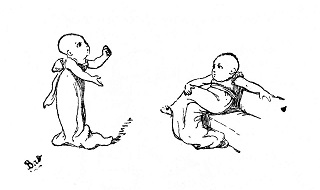
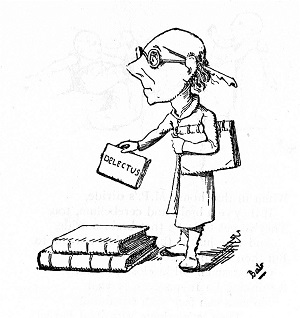
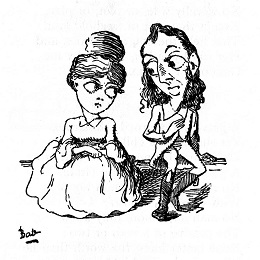
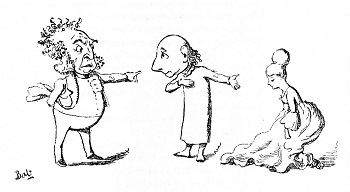
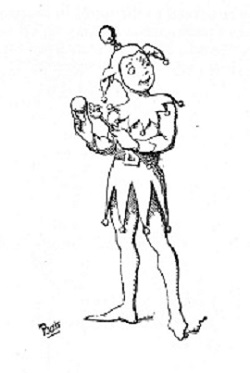
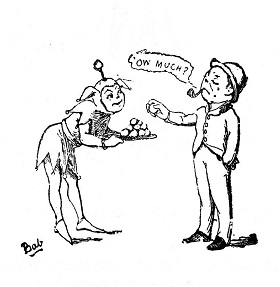
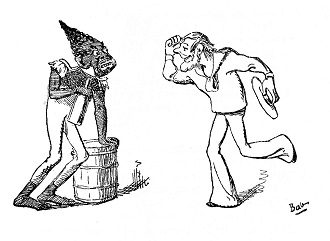
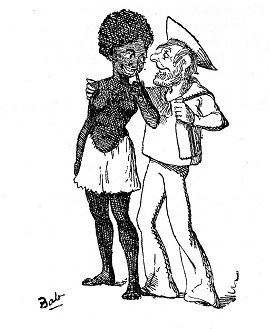
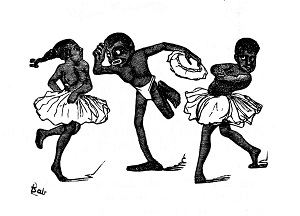
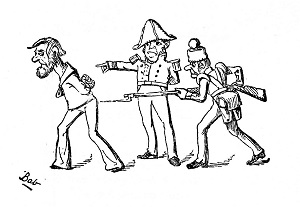
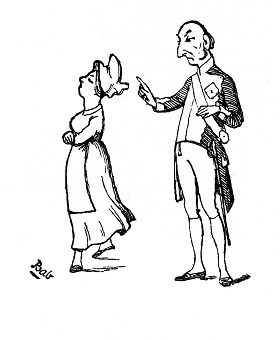
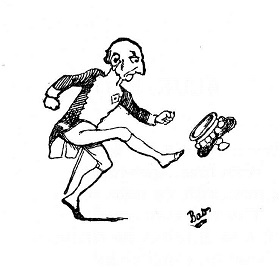
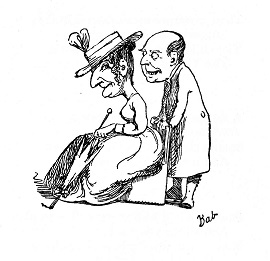
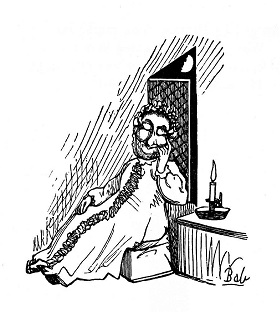
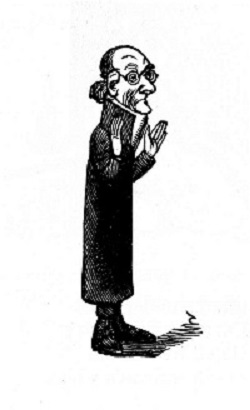
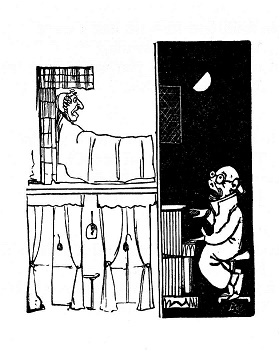
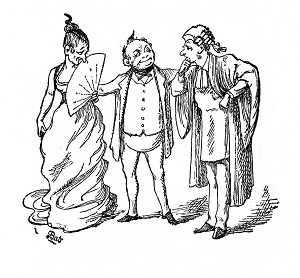
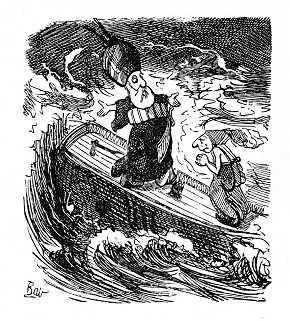
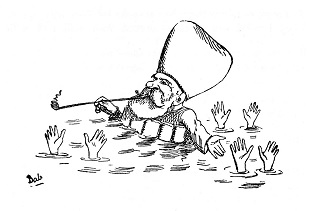
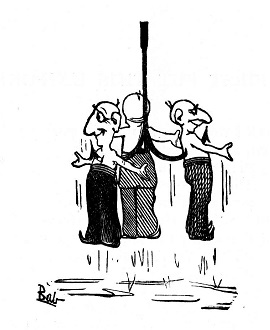
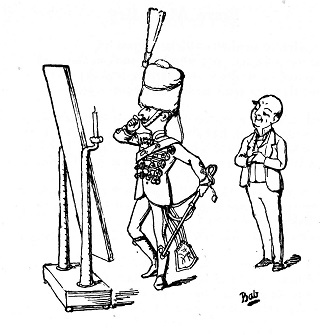
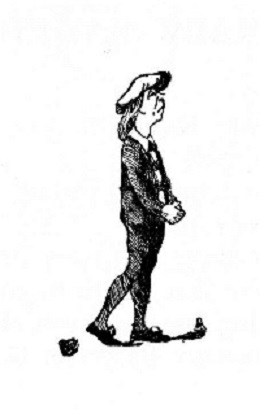
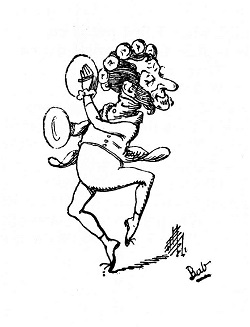
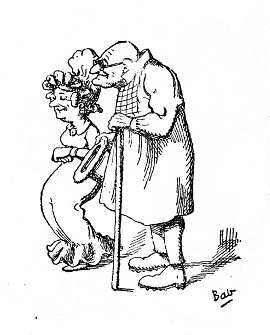
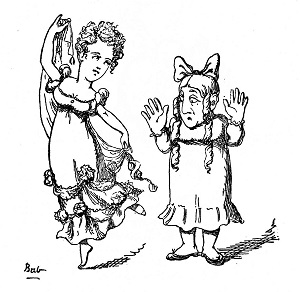
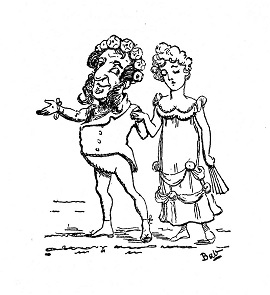
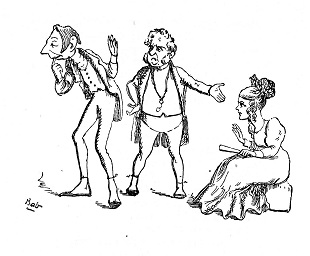
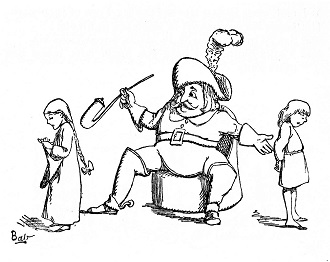
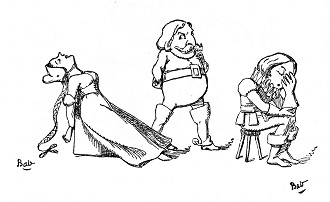
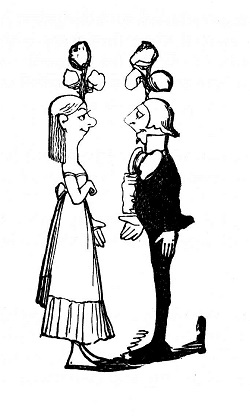
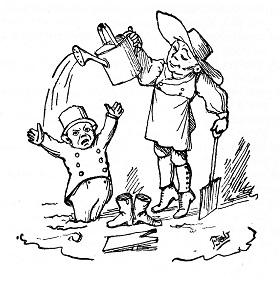
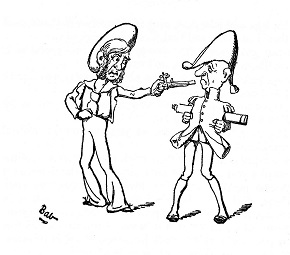
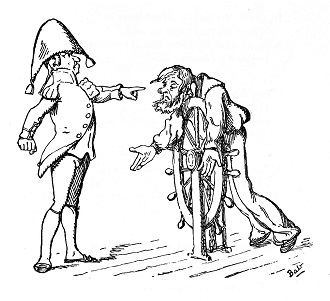
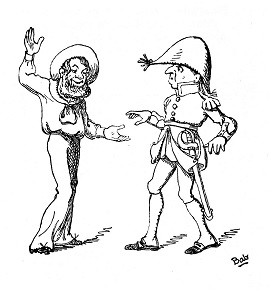
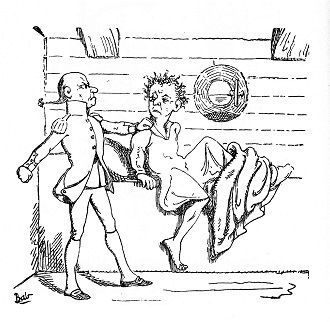
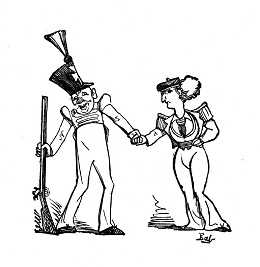
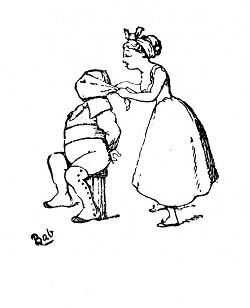
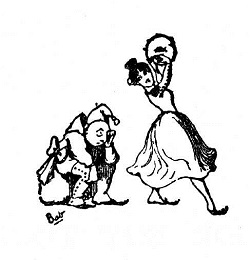
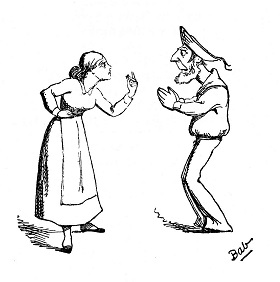
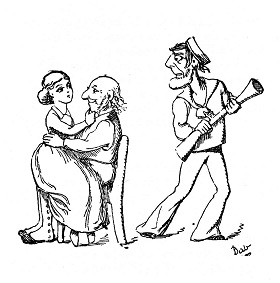
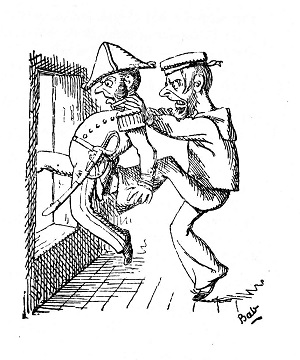
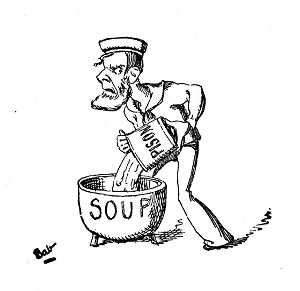
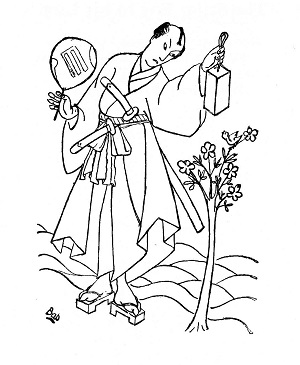
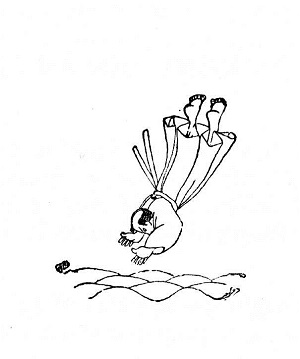
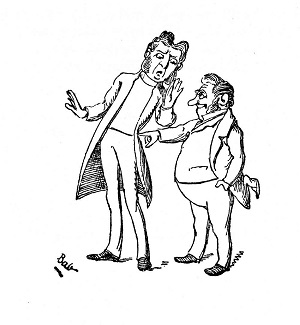
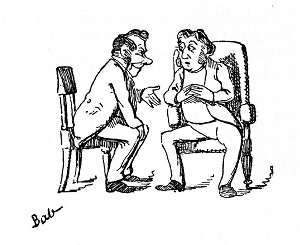
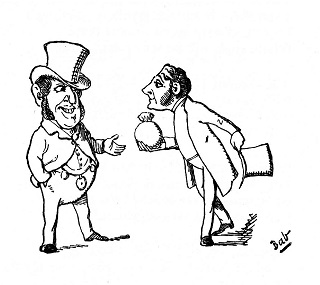
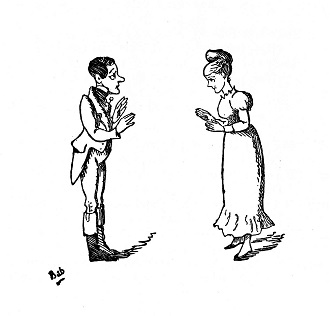
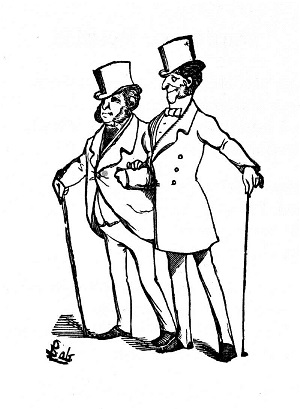
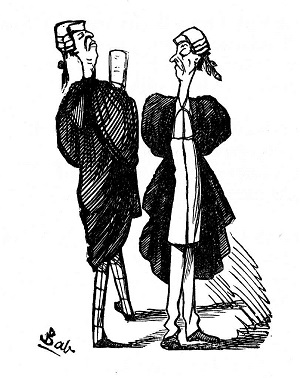
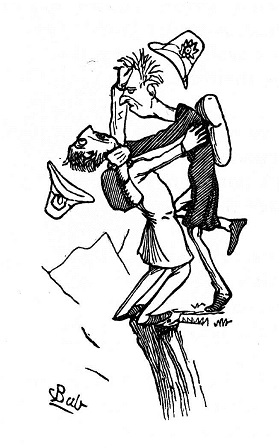
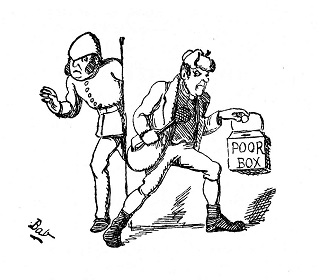
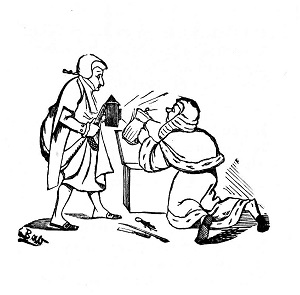
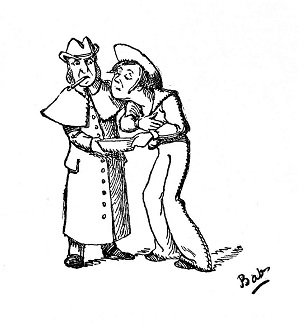
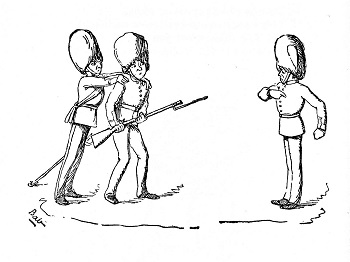
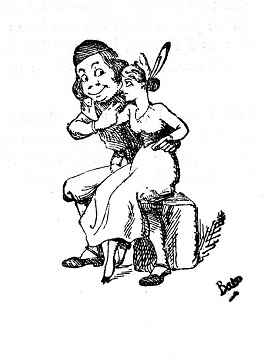
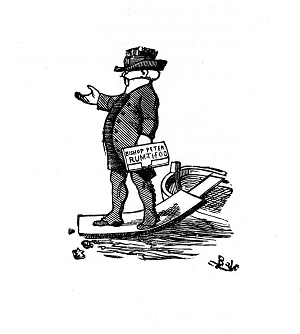
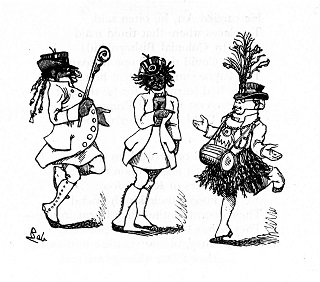
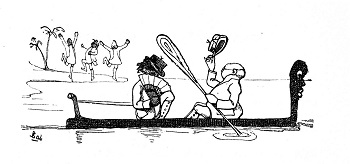
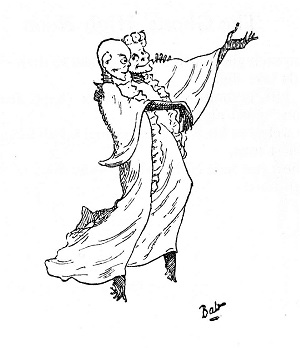
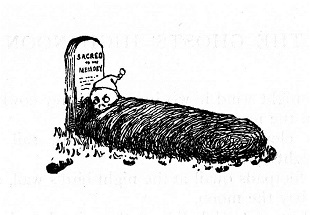
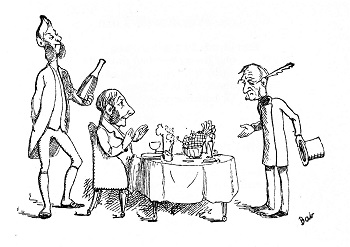
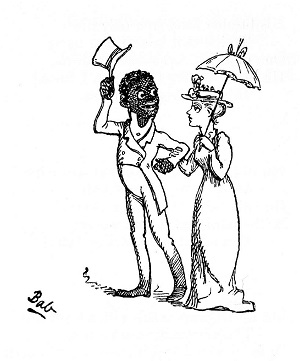
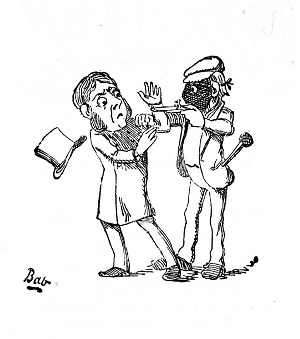
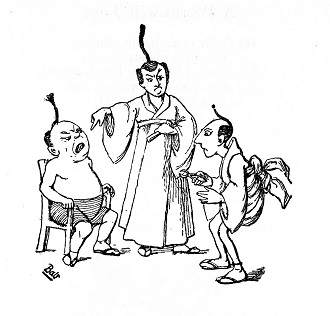
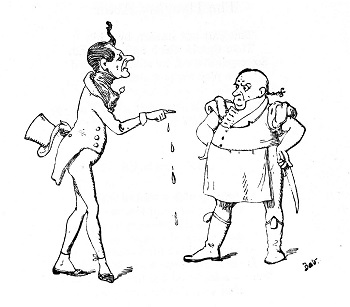
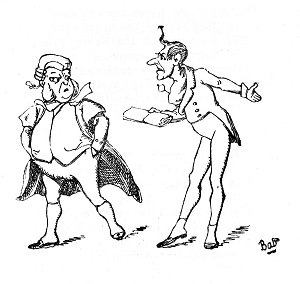
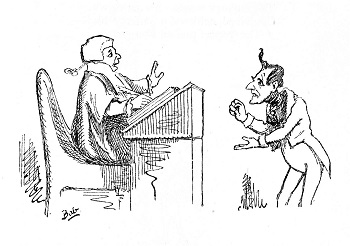
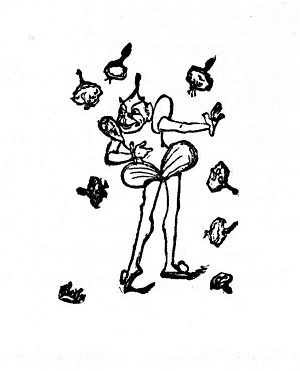
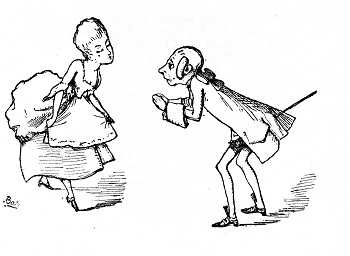
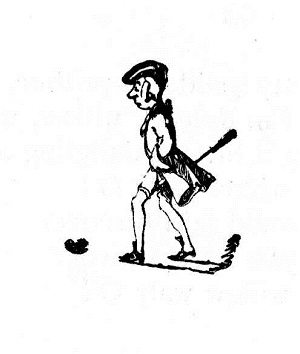
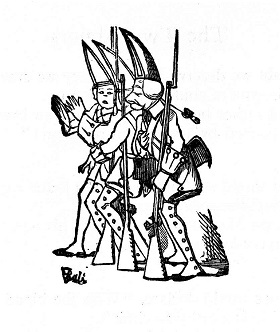
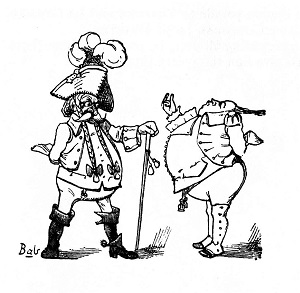
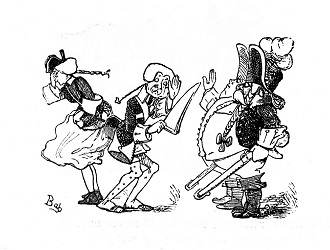
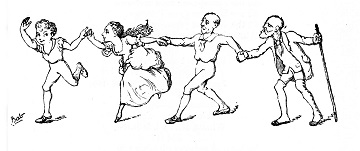
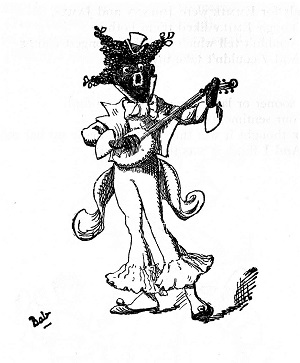
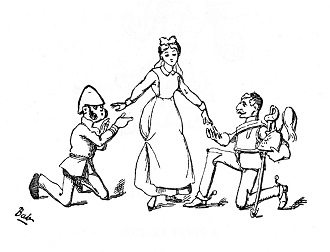
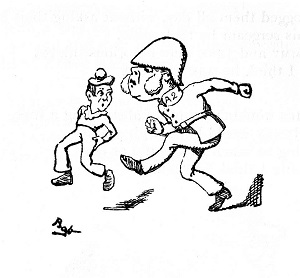
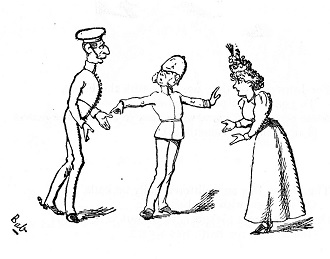
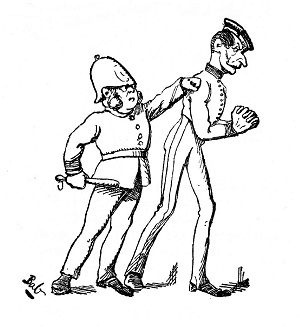
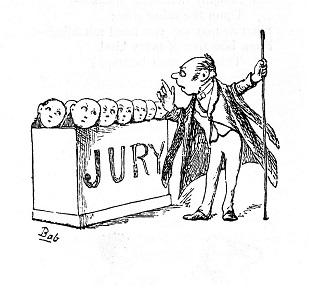
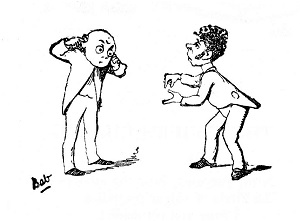
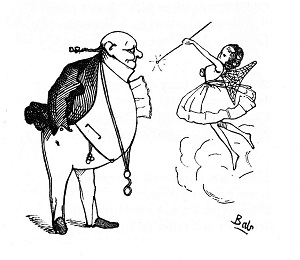
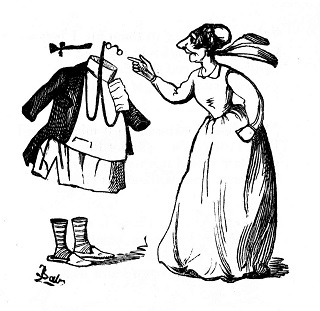
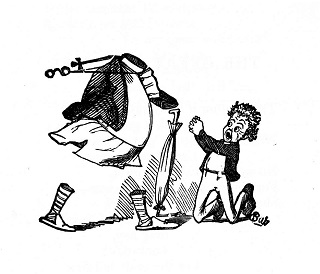
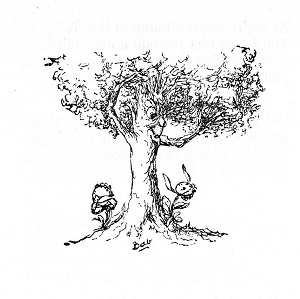
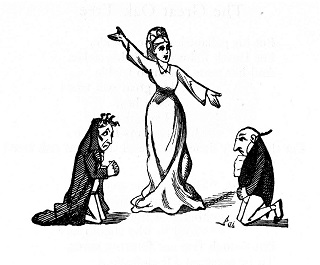
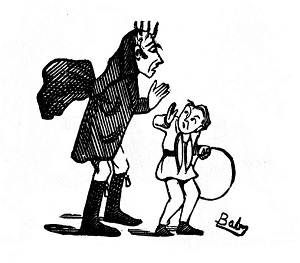
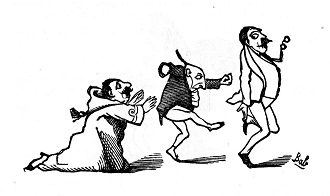
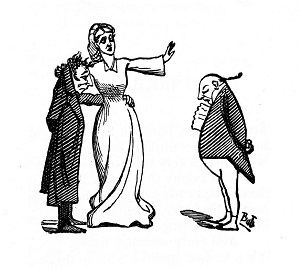
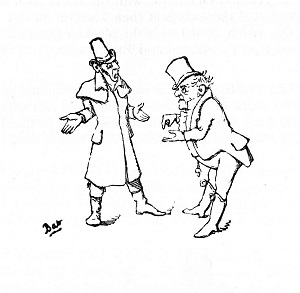
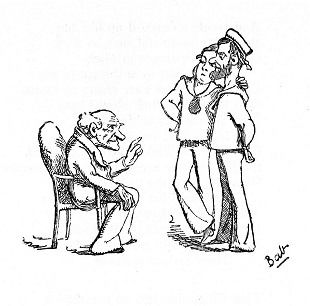
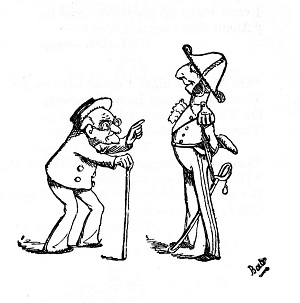
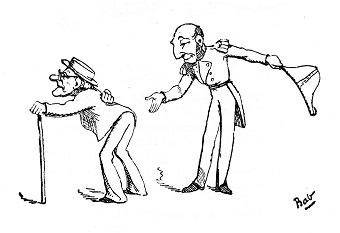
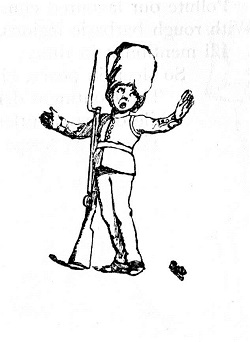
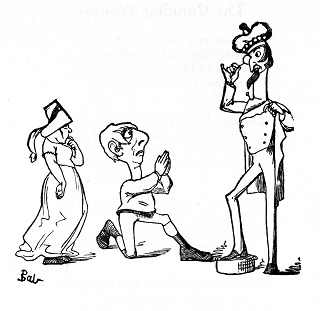
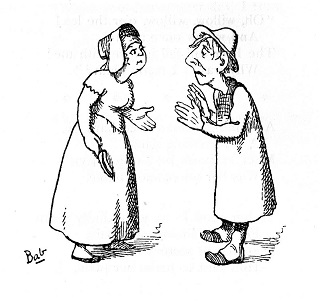
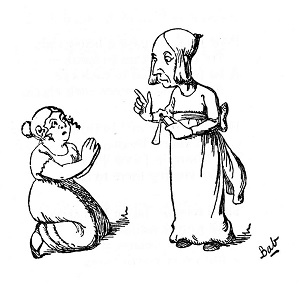
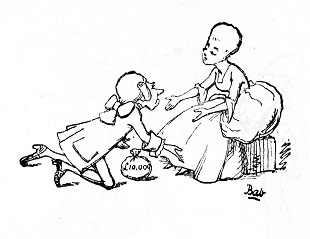
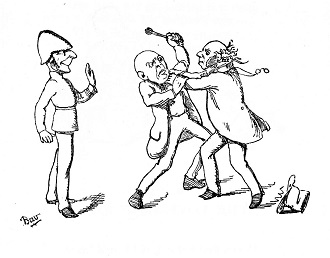
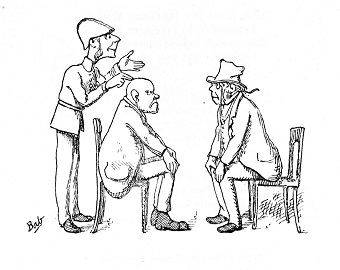
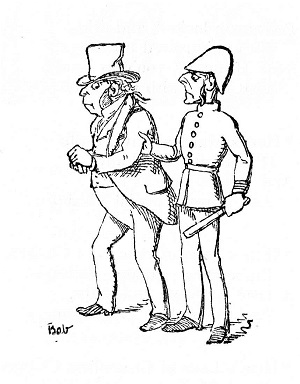
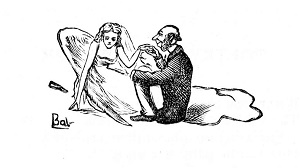
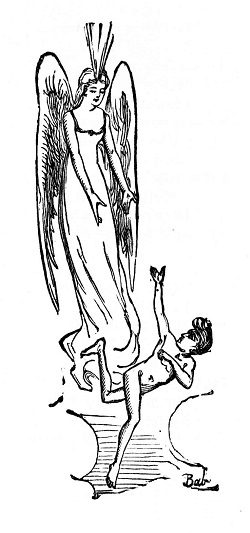
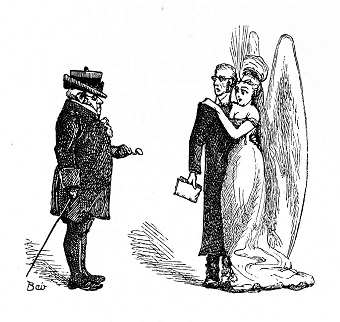
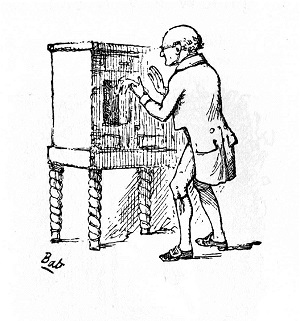
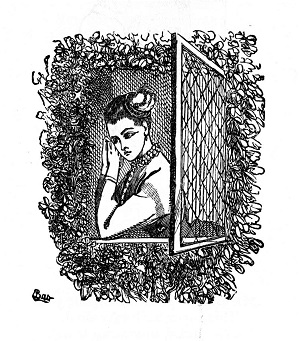
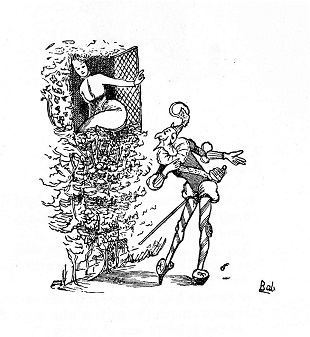
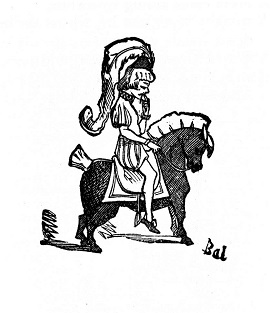
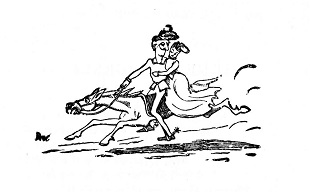
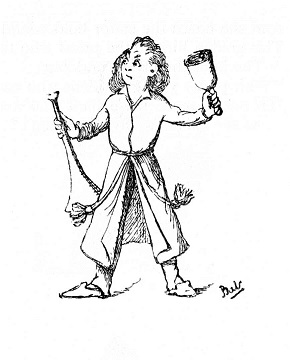
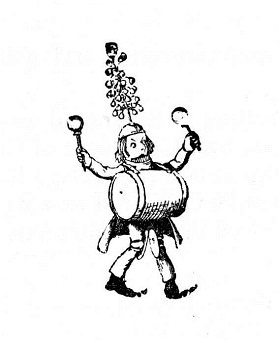
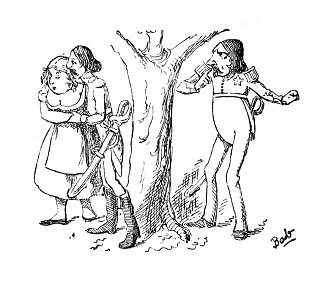
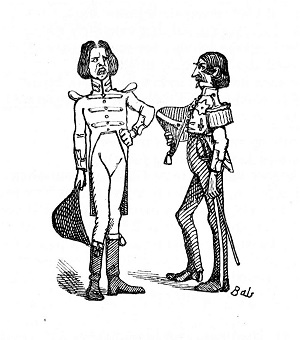
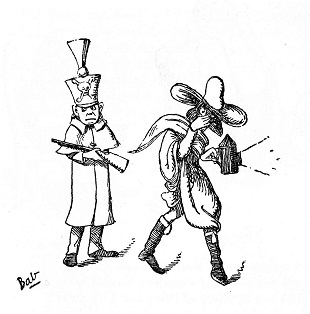
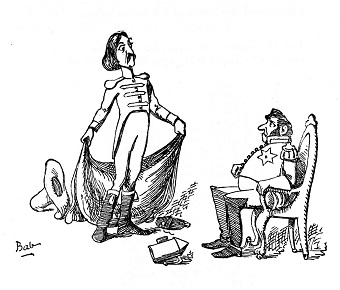
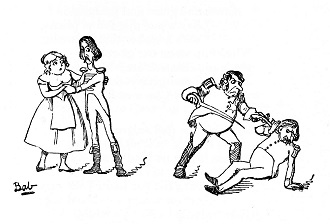
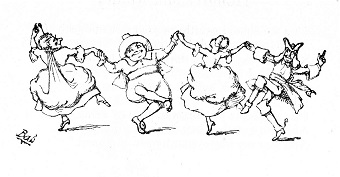
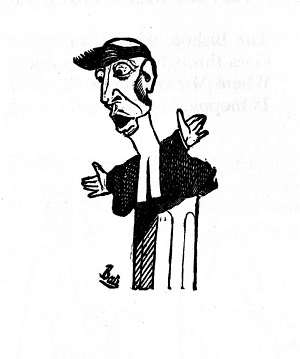
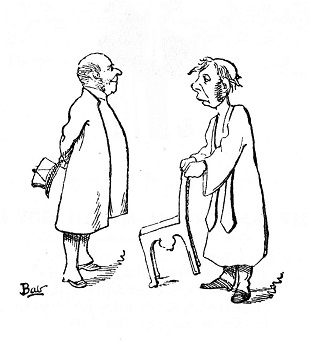
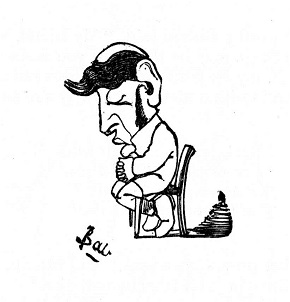
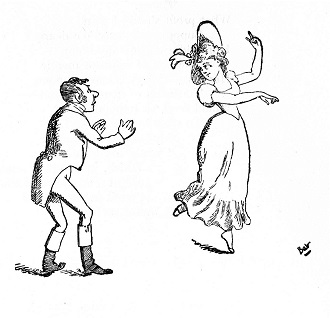
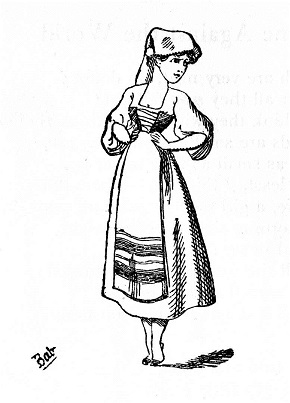
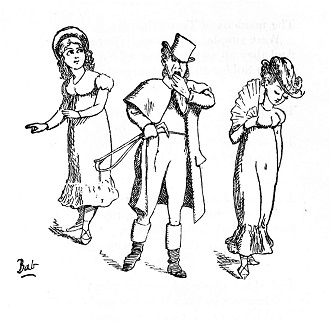
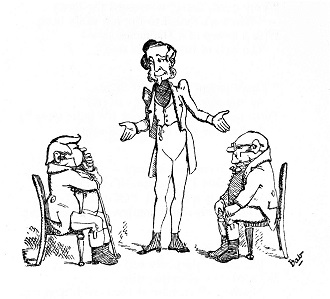
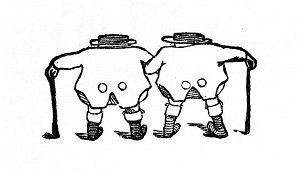
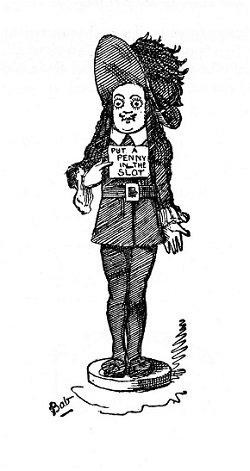
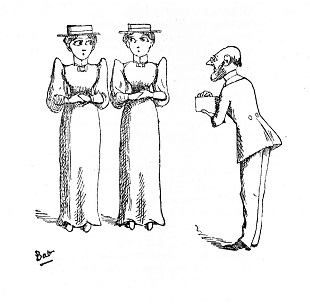
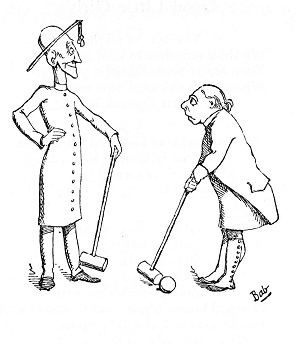
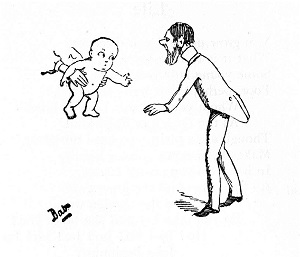
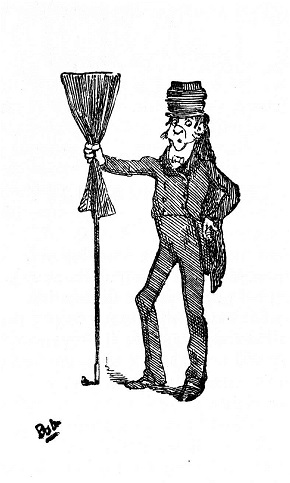
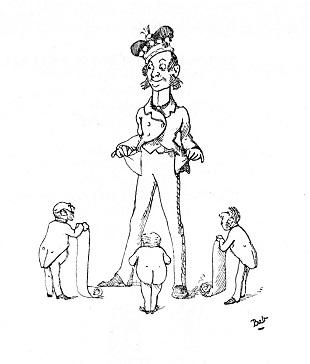
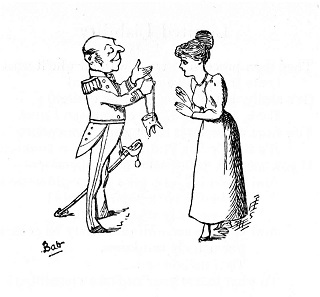
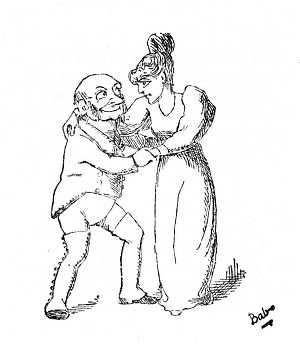
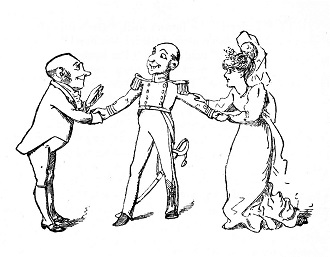
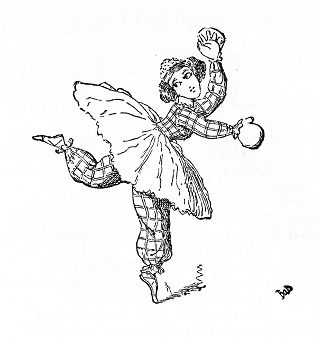
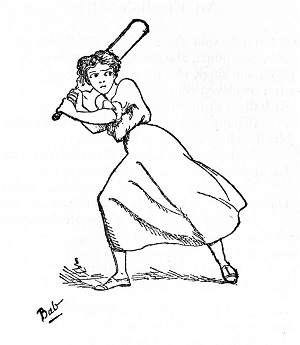
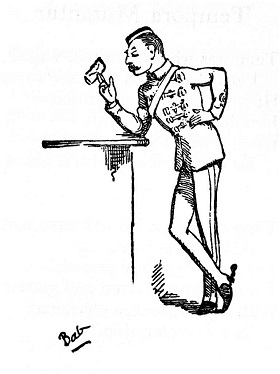
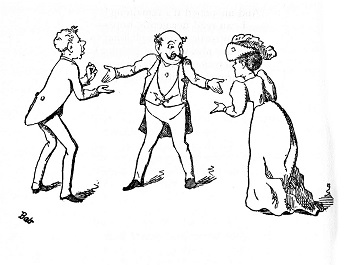
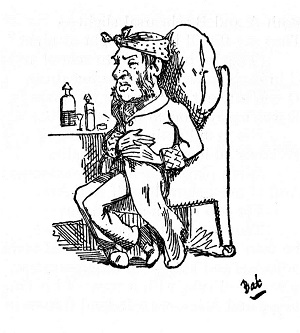
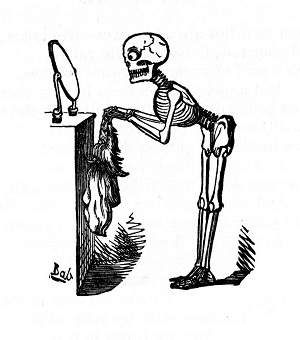
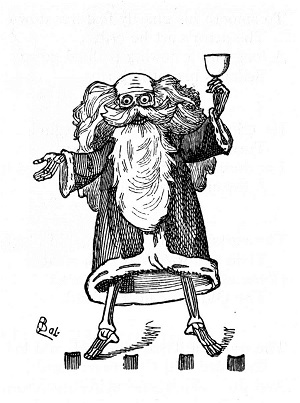
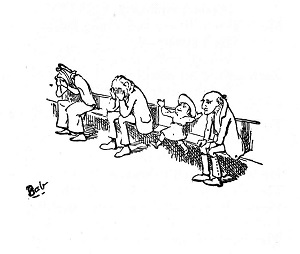
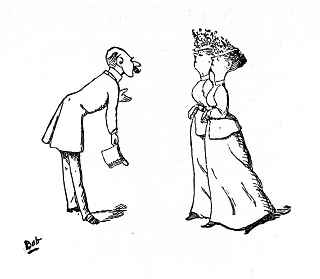
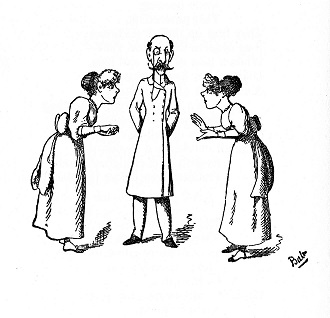
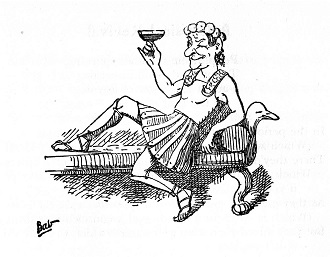
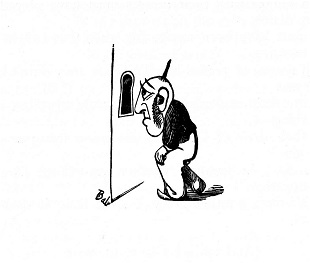
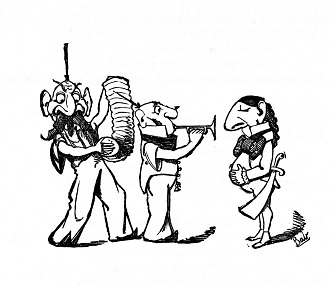
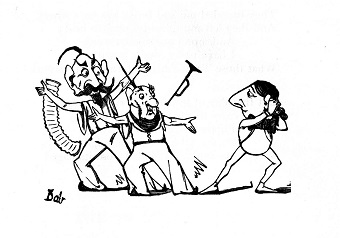
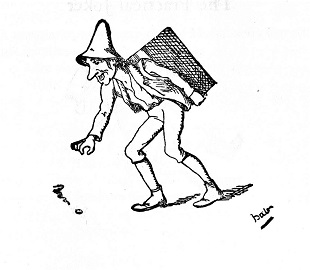
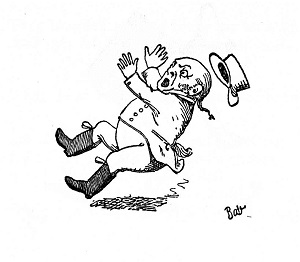
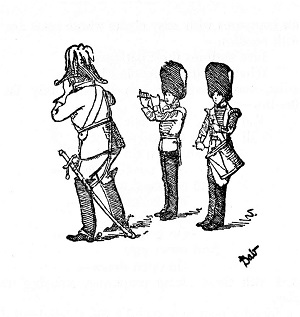
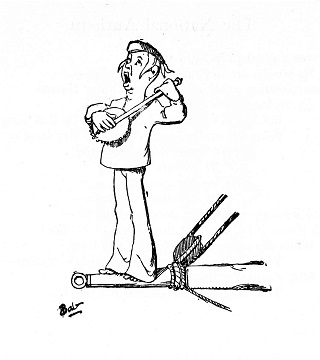
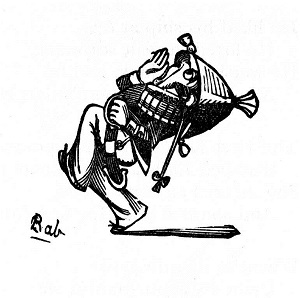
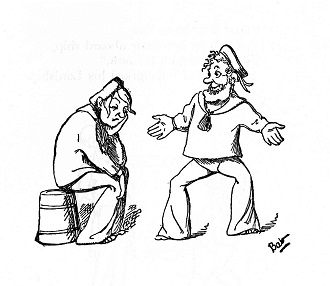
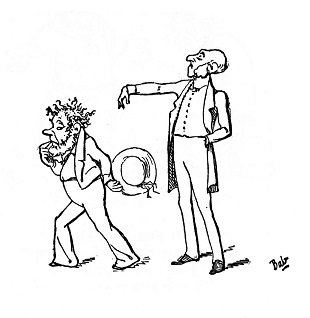
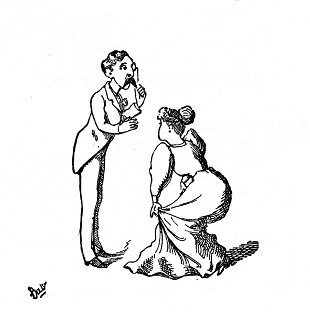
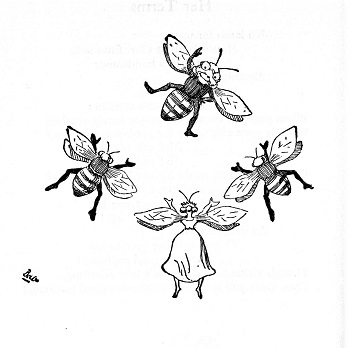
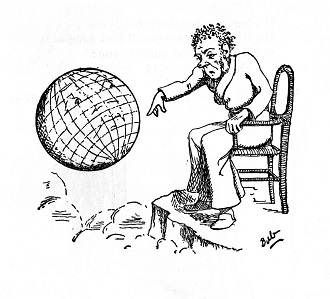
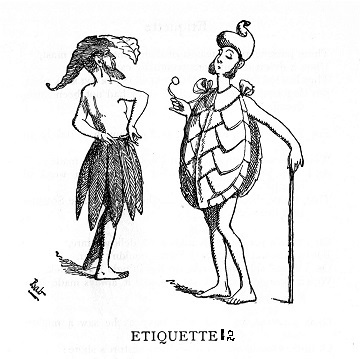
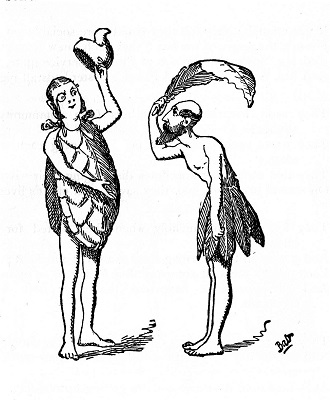
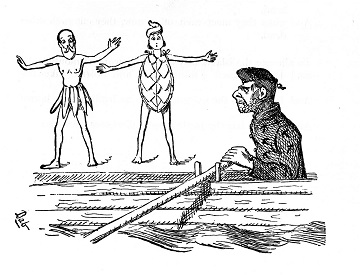
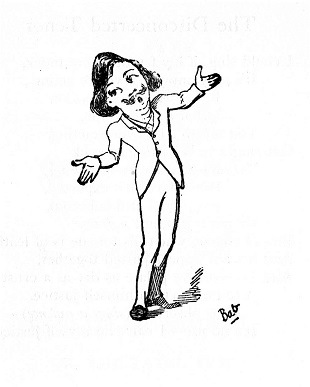
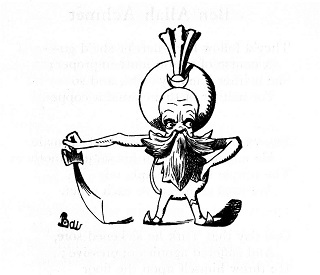
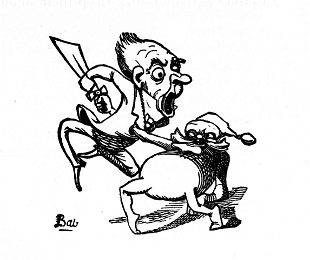
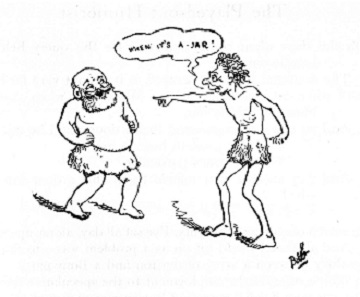
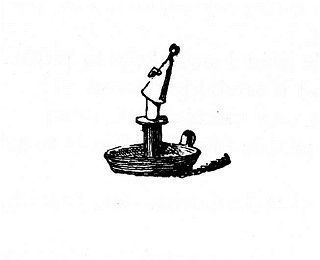
INDEX TO FIRST LINES
| Page | |
| A Bishop once—I will not name his see, | 484 |
| A British tar is a soaring soul, | 204 |
| A clergyman in Berkshire dwelt, | 309 |
| A gentleman of City fame, | 138 |
| A hive of bees, as I've heard say, | 536 |
| A lady fair, of lineage high, | 123 |
| A leafy cot, where no dry rot, | 294 |
| Although of native maids the cream, | 482 |
| A magnet hung in a hardware shop, | 153 |
| A maiden sat at her window wide, | 454 |
| A man who would woo a fair maid, | 209 |
| A monarch is pestered with cares, | 526 |
| A more humane Mikado never, | 388 |
| An actor—Gibbs, of Drury Lane, | 391 |
| An actor sits in doubtful gloom, | 508 |
| An elderly person—a prophet by trade, | 114 |
| An excellent soldier who's worthy the name, | 399 |
| A proud Pasha was Bailey Ben, | 242 |
| A rich advowson, highly prized, | 356 |
| As some day it may happen that a victim must be found, | 99 |
| At a pleasant evening party I had taken down to supper, | 58 |
| A tar, but poorly prized, | 528 |
| A tenor, all singers above, | 547 |
| A Troubadour he played, | 51 |
| At the outset I may mention it's my sovereign intention, | 515 |
| A wonderful joy our eyes to bless, | 499 |
| [Pg 556] | |
| Babette she was a fisher gal, | 76 |
| Bedecked in fashion trim, | 471 |
| Bob Polter was a navvy, and, | 176 |
| Bold-faced ranger, | 512 |
| Braid the raven hair, | 113 |
| Brightly dawns our wedding day, | 81 |
| Come, collar this bad man, | 440 |
| Come mighty Must!, | 367 |
| Come with me, little maid!, | 24 |
| Comes a train of little ladies, | 254 |
| Comes the broken flower, | 329 |
| Dalilah de Dardy adored, | 64 |
| Dr. Belville was regarded as the Crichton of his age, | 146 |
| Earl Joyce he was a kind old party, | 229 |
| Emily Jane was a nursery maid, | 405 |
| Fear no unlicensed entry, | 431 |
| First you're born—and I'll be bound you, | 487 |
| From east and south the holy clan, | 108 |
| Gentle, modest, little flower, | 122 |
| Good children, list, if you're inclined, | 221 |
| Haunted? Ay, in a social way, | 39 |
| He is an Englishman!, | 13 |
| He loves! If in the bygone years, | 453 |
| I am the very pattern of a modern Major-Gineral, | 42 |
| I cannot tell what this love may be, | 169 |
| If my action's stiff and crude, | 480 |
| If you give me your attention, I will tell you what I am, | 16 |
| If you're anxious to shine in the high æsthetic line, as a man of culture rare, | 271 |
| If you want a receipt for that popular mystery, | 49 |
| I go away, this blessed day, | 348 |
| I have a song to sing, O! | 182 |
| [Pg 557] | |
| I knew a boor—a clownish card, | 87 |
| I know a youth who loves a little maid, | 361 |
| I love a man who'll smile and joke, | 383 |
| I'm old, my dears, and shrivelled with age, and work, and grief, | 214 |
| In all the towns and cities fair, | 131 |
| In enterprise of martial kind, | 262 |
| I often wonder whether you, | 376 |
| I once did know a Turkish man, | 549 |
| I shipped, d'ye see, in a Revenue sloop, | 6 |
| I sing a legend of the sea, | 273 |
| Is life a boon? | 38 |
| I stole the Prince, and I brought him here, | 26 |
| It's my opinion—though I own, | 473 |
| It was a Bishop bold, | 44 |
| It was a robber's daughter, and her name was Alice Brown, | 205 |
| I've often thought that headstrong youths, | 164 |
| I've painted Shakespeare all my life, | 287 |
| I've wisdom from the East and from the West, | 299 |
| John courted lovely Mary Ann, | 28 |
| King Borria Bungalee Boo, | 155 |
| Letters, letters, letters, letters! | 501 |
| List while the poet trolls, | 8 |
| Lord B. was a nobleman bold, | 475 |
| Macphairson Clonglocketty Angus M'Clan, | 185 |
| Mr. Blake was a regular out-and-out hardened sinner, | 256 |
| My boy, you may take it from me, | 458 |
| My wedded life, | 534 |
| No nobler captain ever trod, | 492 |
| Now, Jurymen, hear my advice, | 411 |
| Now, Marco, dear, | 345 |
| O'er unreclaimed suburban clays, | 148 |
| Of all the good attorneys who, | 125 |
| [Pg 558] | |
| Of all the ships upon the blue, | 1 |
| Of all the youths I ever saw, | 94 |
| Oh! a private buffoon is a light-hearted loon, | 161 |
| Oh, big was the bosom of brave Alum Bey, | 317 |
| Oh, foolish fay, | 32 |
| Oh, gentlemen, listen, I pray, | 136 |
| Oh! is there not one maiden breast, | 143 |
| Oh! listen to the tale of little Annie Protheroe, | 280 |
| Oh, listen to the tale of Mister William, if you please, | 235 |
| Oh, list to this incredible tale, | 171 |
| Oh! little maid!—(I do not know your name), | 82 |
| Oh! my name is John Wellington Wells, | 211 |
| Oh, that my soul its gods could see, | 71 |
| Oh, what a fund of joy jocund lies hid in harmless hoaxes! | 523 |
| Old Peter led a wretched life, | 413 |
| On all Arcadia's sunny plain, | 433 |
| On a tree by a river a little tomtit, | 354 |
| Once a fairy, | 446 |
| Only a dancing girl, | 14 |
| Perhaps already you may know, | 426 |
| Policeman Peter Forth I drag, | 193 |
| Prithee, pretty maiden—prithee, tell me true, | 397 |
| Quixotic is his enterprise, and hopeless his adventure is | 553 |
| Rising early in the morning, | 119 |
| Roll on, thou ball, roll on! | 539 |
| Sad is that woman's lot who, year by year, | 22 |
| Sighing softly to the river, | 219 |
| Sir Guy was a doughty crusader, | 34 |
| Small titles and orders, | 84 |
| Society has quite forsaken all her wicked courses, | 497 |
| Some seven men form an Association, | 490 |
| Some time ago, in simple verse, | 338 |
| Sorry her lot who loves too well, | 286 |
| Spurn not the nobly born, | 307 |
| Strike the concertina's melancholy string, | 518 |
| [Pg 559] | |
| Take a pair of sparkling eyes, | 175 |
| The air is charged with amatory numbers, | 92 |
| The Ballyshannon foundered off the coast of Cariboo, | 541 |
| The bravest names for fire and flames, | 18 |
| The earth has armies plenty, | 248 |
| The law is the true embodiment, | 191 |
| The other night, from cares exempt, | 368 |
| There grew a little flower, | 418 |
| There lived a King, as I've been told, | 424 |
| The Reverend Micah Sowls, | 467 |
| There were three niggers of Chickeraboo, | 200 |
| The story of Frederick Gowler, | 301 |
| The sun was setting in its wonted west, | 460 |
| The Sun, whose rays, | 56 |
| They intend to send a wire, | 106 |
| This is Sir Barnaby Bampton Boo, | 324 |
| To a garden full of posies, | 130 |
| Try we life-long, we can never, | 466 |
| 'Twas on the shores that round our coast, | 101 |
| Two better friends you wouldn't pass, | 363 |
| Vast, empty shell! | 144 |
| Weary at heart and extremely ill, | 265 |
| Were I a king in very truth, | 504 |
| Were I thy bride, | 374 |
| What time the poet hath hymned, | 445 |
| When a felon's not engaged in his employment, | 63 |
| When all night long a chap remains, | 292 |
| When a merry maiden marries, | 198 |
| When Britain really ruled the waves, | 74 |
| Whene'er I poke sarcastic joke, | 69 |
| When first my old, old love I knew, | 439 |
| When I first put this uniform on, | 322 |
| When I, good friends, was called to the Bar, | 315 |
| When I was a lad I served a term, | 227 |
| When I went to the Bar as a very young man, | 278 |
| When maiden loves, she sits and sighs, | 255 |
| When man and maiden meet, I like to see a drooping eye, | 330 |
| [Pg 560] | |
| When rival adorers come courting a maid, | 420 |
| When the buds are blossoming, | 403 |
| When the night wind howls in the chimney cowl, and the bat in the moonlight flies, | 381 |
| When you find you're a broken-down critter, | 506 |
| When you're lying awake with a dismal headache, and repose is taboo'd by anxiety, | 335 |
| Would you know the kind of maid, | 240 |
ALPHABETICAL INDEX TO TITLES
| Page | |
| Æsthete, The, | 271 |
| Ah Me!, | 255 |
| Anglicised Utopia, | 497 |
| Annie Protheroe, | 280 |
| Ape and the Lady, The, | 123 |
| Appeal, An, | 143 |
| At a Pantomime, | 508 |
| A Worm will Turn, | 383 |
| Babette's Love, | 76 |
| Baby's Vengeance, The, | 265 |
| Baffled Grumbler, The, | 69 |
| Baines Carew, Gentleman, | 125 |
| Ben Allah Achmet; or, the Fatal Tum, | 549 |
| Bishop and the 'Busman, The, | 44 |
| Bishop of Rum-ti-Foo, The, | 108 |
| Bishop of Rum-ti-Foo Again, The, | 376 |
| Blue Blood, | 307 |
| Bob Polter, | 176 |
| Braid the Raven Hair, | 113 |
| Brave Alum Bey, | 317 |
| British Tar, The, | 204 |
| Bumboat Woman's Story, The, | 214 |
| Captain and the Mermaids, The, | 273 |
| Captain Reece, | 1 |
| Classical Revival, A, | 505 |
| Coming By-and-By, The, | 22 |
| Contemplative Sentry, The, | 292 |
| Cunning Woman, The, | 433 |
| Damon v. Pythias, | 363 |
| Darned Mounseer, The, | 6 |
| Disagreeable Man, The, | 16 |
| Disconcerted Tenor, The, | 547 |
| Discontented Sugar Broker, A, | 138 |
| Disillusioned, | 71 |
| Don't Forget!, | 345 |
| Duke and the Duchess, The, | 84 |
| Duke of Plaza-Toro, The, | 262 |
| Eheu Fugaces—!, | 92 |
| Ellen M'Jones Aberdeen, | 185 |
| [Pg 562] | |
| Emily, John, James, and I, | 405 |
| English Girl, An, | 499 |
| Englishman, The, | 13 |
| Etiquette, | 541 |
| Fairy Curate, The, | 446 |
| Fairy Queen's Song, The, | 32 |
| Family Fool, The, | 161 |
| Ferdinando and Elvira; or, the Gentle Pieman, | 58 |
| Fickle Breeze, The, | 219 |
| First Lord's Song, The, | 227 |
| First Love, | 299 |
| Folly of "Brown, The, | 87 |
| Force of Argument, The, | 475 |
| General John, | 18 |
| Gentle Alice Brown, | 205 |
| Ghosts' High Noon, The, | 381 |
| Ghost, the Gallant, the Gael, and the Goblin, The, | 148 |
| Girl Graduates, | 106 |
| Good Little Girls, | 482 |
| Great Oak Tree, The, | 418 |
| Gregory Parable, LL.D. | 294 |
| Haughty Actor, The, | 391 |
| Haunted, | 39 |
| He and She, | 361 |
| Heavy Dragoon, The, | 49 |
| He Loves! | 453 |
| Her Terms, | 534 |
| Highly Respectable Gondolier, The, | 26 |
| Hongree and Mahry, | 460 |
| House of Peers, The, | 74 |
| How it's Done, | 512 |
| Humane Mikado, The, | 388 |
| Independent Bee, The, | 536 |
| Is Life a Boon? | 38 |
| Joe Golightly; or, the First Lord's Daughter, | 528 |
| John and Freddy, | 28 |
| Judge's Song, The, | 315 |
| King Borria Bungalee Boo, | 155 |
| King Goodheart, | 424 |
| King of Canoodle-dum, The, | 301 |
| Lieutenant-Colonel Flare, | 248 |
| Life, | 487 |
| Life is Lovely all the Year, | 403 |
| Limited Liability, | 490 |
| Little Oliver, | 229 |
| Lorenzo de Lardy, | 64 |
| Lost Mr. Blake, | 256 |
| Love-sick Boy, The, | 439 |
| Magnet and the Churn, The, | 153 |
| Manager's Perplexities, A, | 504 |
| Man who would Woo a Fair Maid, A, | 209 |
| Martinet, The, | 338 |
| Merry Madrigal, A, | 81 |
| Merryman and his Maid, The, | 182 |
| [Pg 563] | |
| Mighty Must, The, | 367 |
| Mirage, A, | 374 |
| Mister William, | 235 |
| Modern Major-General, The, | 42 |
| Modest Couple, The, | 330 |
| My Dream, | 368 |
| My Lady, | 471 |
| Mystic Selvagee, The, | 426 |
| National Anthem, The, | 526 |
| Nightmare, A, | 335 |
| Old Paul and Old Tim, | 420 |
| One against the World, | 473 |
| Only a Dancing Girl, | 14 |
| Only Roses, | 130 |
| Out of Sorts, | 506 |
| Pantomime "Super" to his Mask, The, | 144 |
| Pasha Bailey Ben, | 242 |
| Perils of Invisibility, The, | 413 |
| Periwinkle Girl, The, | 164 |
| Peter the Wag, | 193 |
| Phantom Curate, The, | 484 |
| Philosophic Pill, The, | 299 |
| Phrenology, | 440 |
| Played-out Humorist, The, | 553 |
| Poetry Everywhere, | 445 |
| Policeman's Lot, The, | 63 |
| Practical Joker, The, | 523 |
| Precocious Baby, The, | 114 |
| Proper Pride, | 56 |
| Put a Penny in the Slot, | 280 |
| Recipe, A, | 175 |
| Reverend Micah Sowls, The, | 467 |
| Reverend Simon Magus, The, | 356 |
| Reward of Merit, The, | 146 |
| Rival Curates, The, | 8 |
| Rover's Apology, The, | 136 |
| Said I to Myself, Said I, | 278 |
| Sailor Boy to his Lass, The, | 348 |
| Sans Souci, | 169 |
| Sensation Captain, The, | 492 |
| Sir Barnaby Bampton Boo, | 324 |
| Sir Guy the Crusader, | 34 |
| Sir Macklin, | 94 |
| Sleep on! | 431 |
| Solatium, | 329 |
| Sorcerer's Song, The, | 211 |
| Sorry her Lot, | 286 |
| Speculation, | 254 |
| Story of Prince Agib, The, | 518 |
| Suicide's Grave, The, | 354 |
| Susceptible Chancellor, The, | 191 |
| Tangled Skein, The, | 466 |
| Tempora Mutantur, | 501 |
| They'll None of 'em be Missed, | 99 |
| Thomas Winterbottom Hance, | 131 |
| Thomson Green and Harriet Hale, | 171 |
| Three Kings of Chickeraboo, The, | 200 |
| [Pg 564] | |
| To a Little Maid, | 24 |
| To my Bride, | 82 |
| To Ph[oe]be, | 122 |
| To the Terrestrial Globe, | 539 |
| Troubadour, The, | 51 |
| True Diffidence, | 458 |
| Two Majors, The, | 399 |
| Two Ogres, The, | 221 |
| Unfortunate Likeness, An, | 287 |
| Usher's Charge, The, | 411 |
| Way of Wooing, The, | 454 |
| When a Merry Maiden Marries, | 198 |
| When I First Put this Uniform On, | 322 |
| Willow Waly! | 397 |
| Working Monarch, The, | 119 |
| Would you Know? | 240 |
| Yarn of the "Nancy Bell," The, | 101 |
THE END.
Transcriber's Notes
1.Simple typographical errors were silently corrected.
2.Some illustrations have been moved from their original position
as they appear in the source publication.